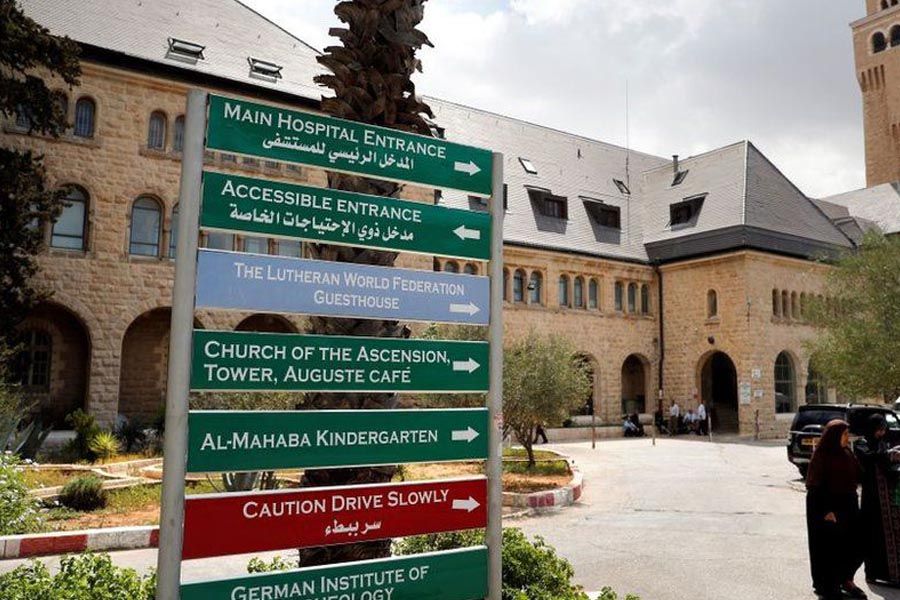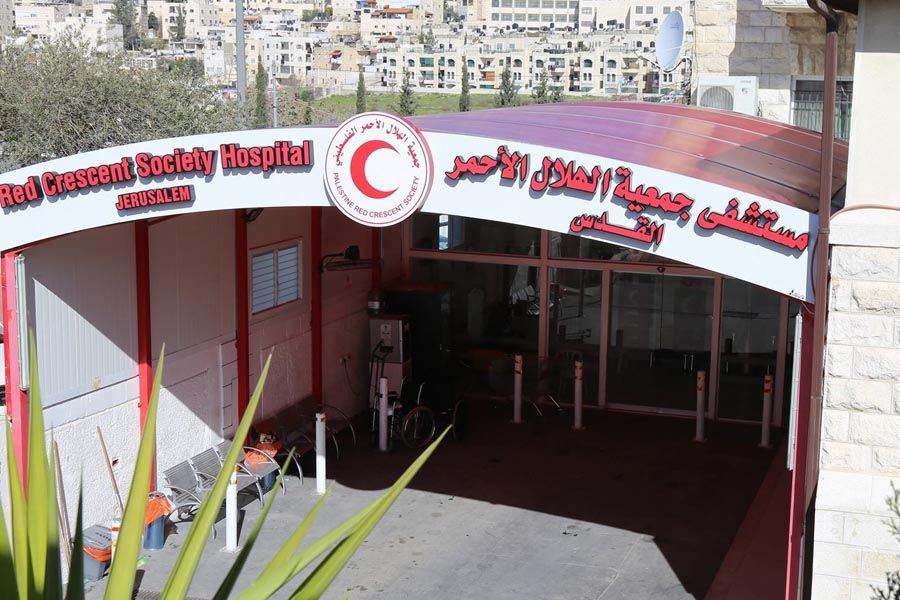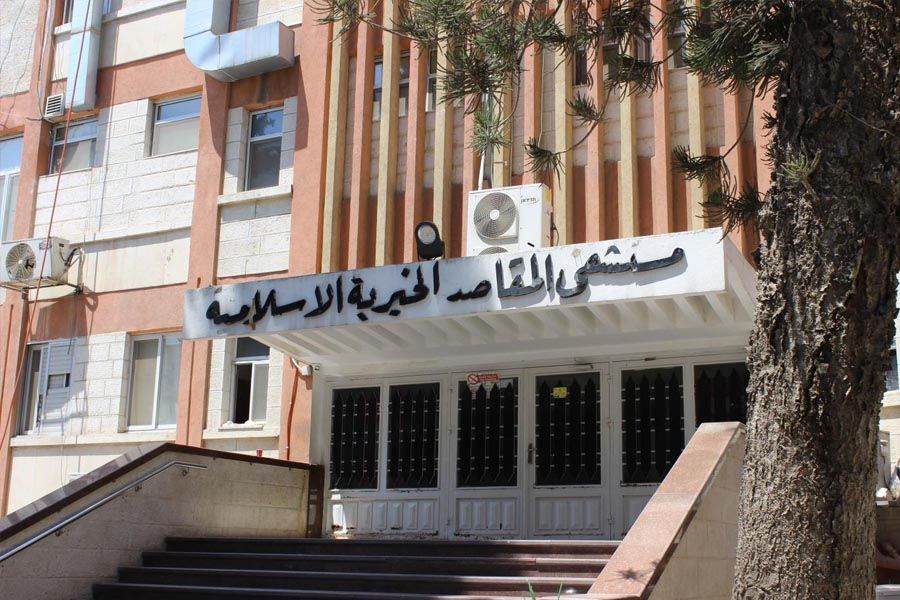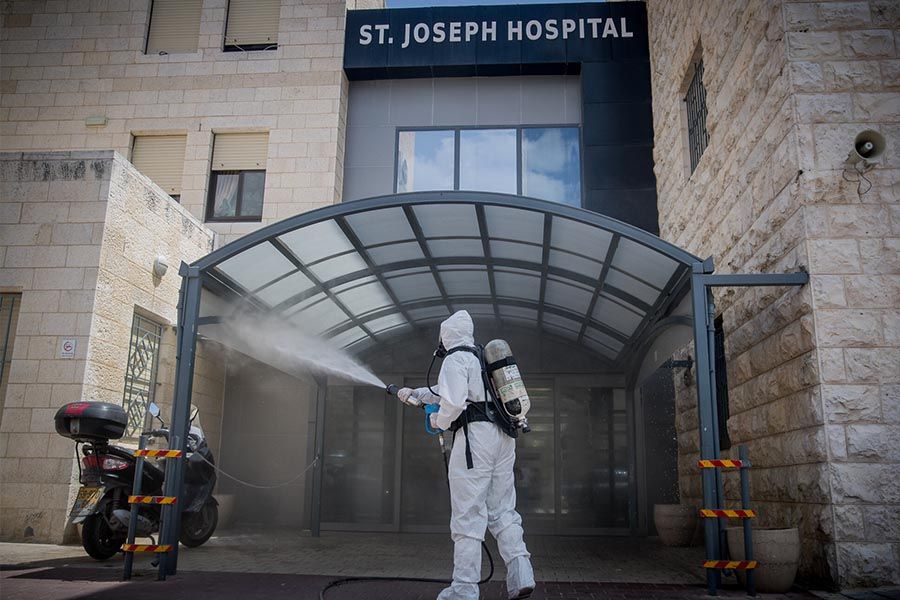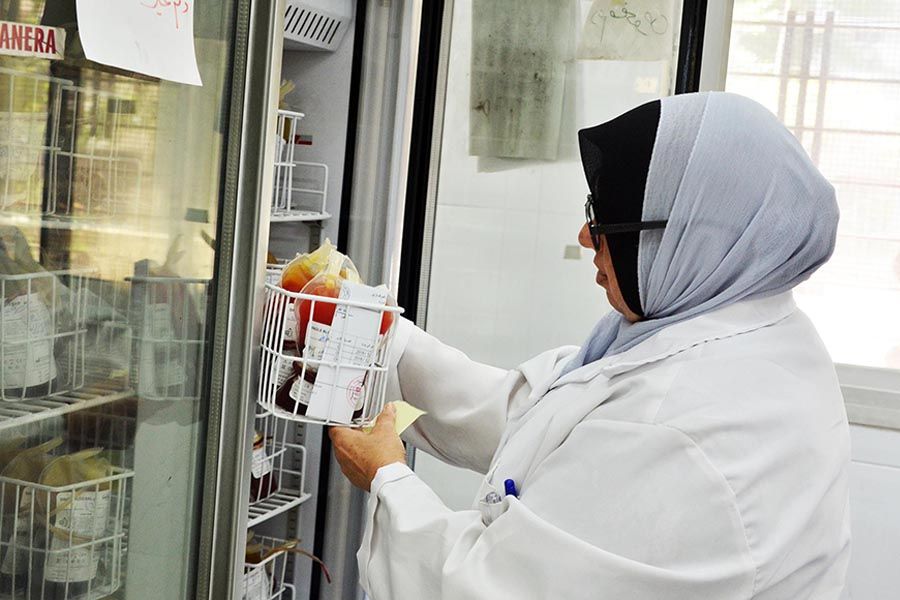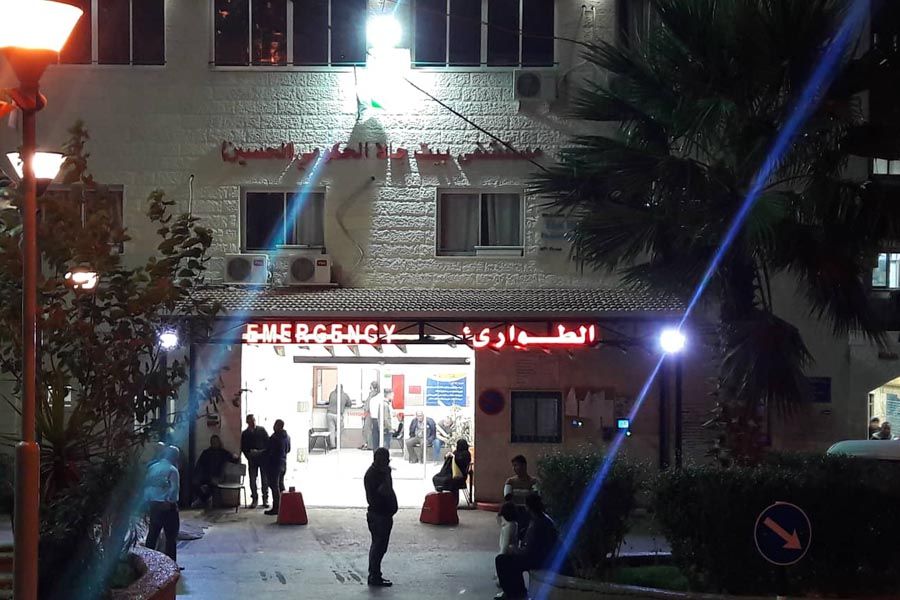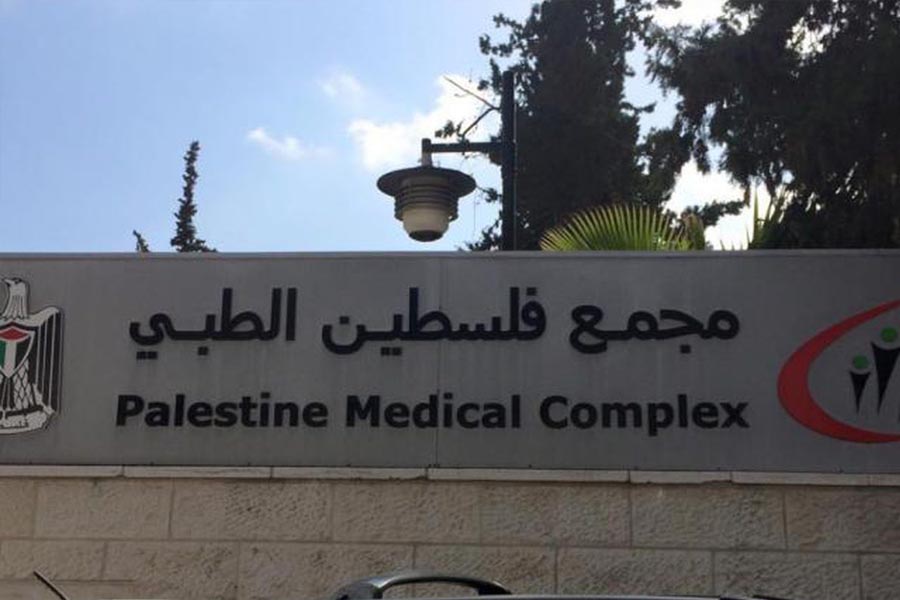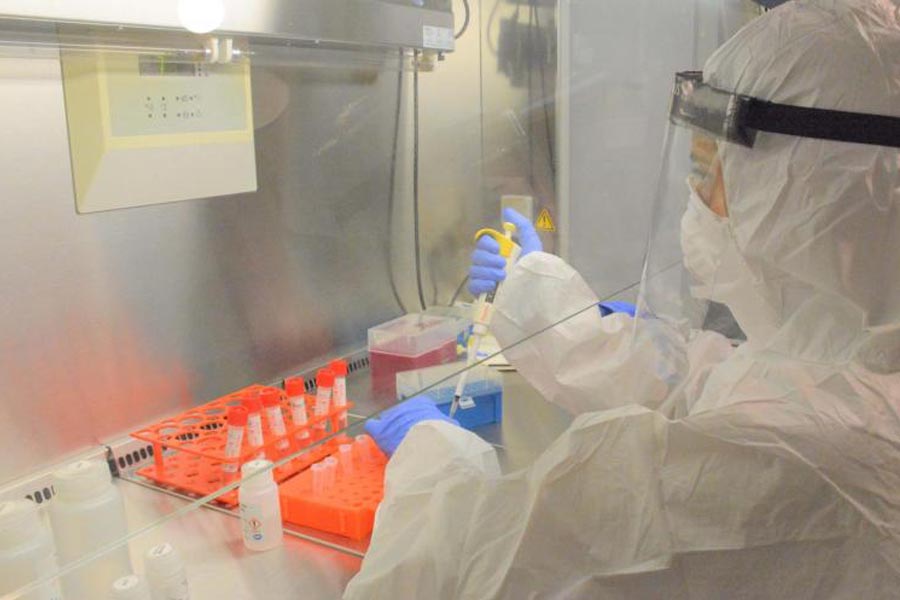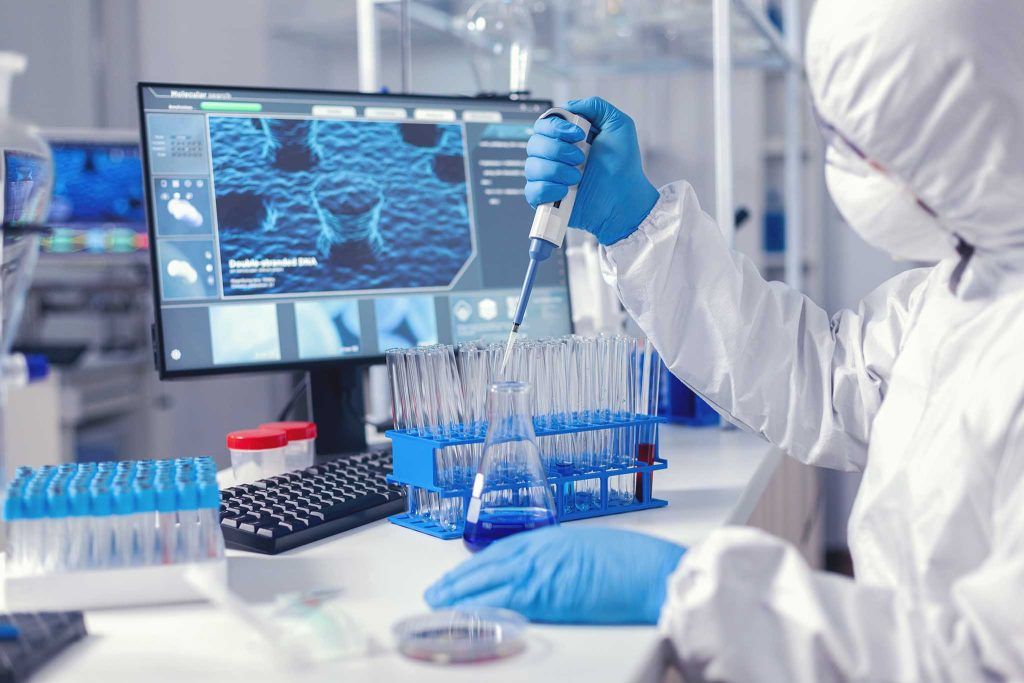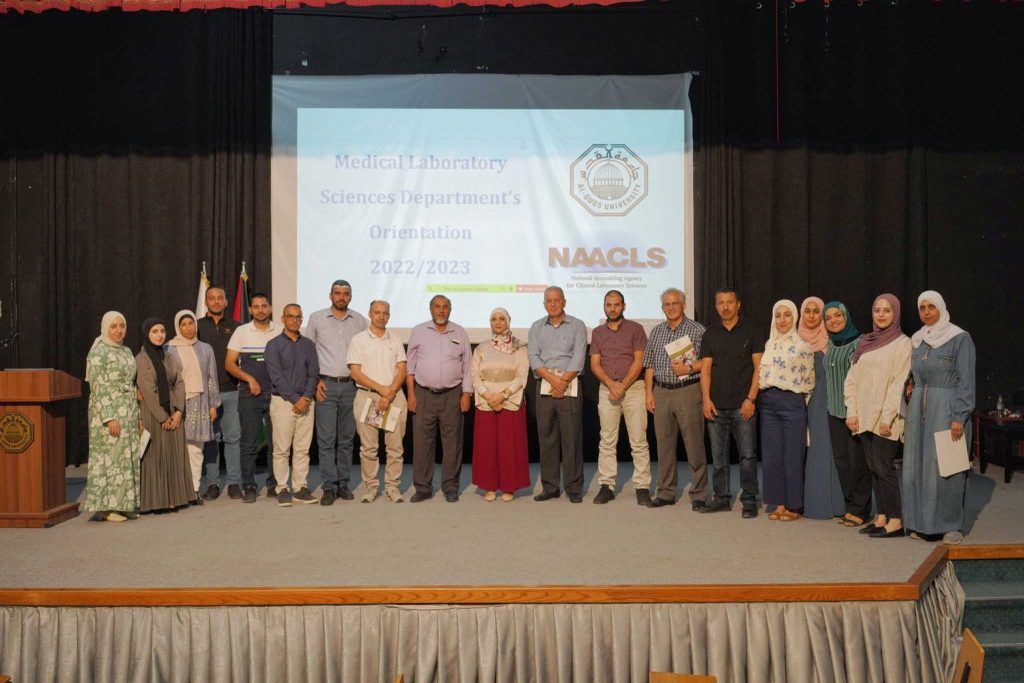About the program
Overview
Medical Laboratory Sciences Department at Al-Quds University is one of the first and most distinguished departments at the national level. The department includes experienced staff in both practical and theoretical fields. The Department staff has a diversity of specializations in the field of Medical Laboratory Sciences. In addition to that, the department includes well-equipped labs for practical training, where the students are trained on the new skills acquired in the theoretical classes. The department celebrates and encourages scientific research, and supports and facilitates continuous education, through the participation of the staff in many national and international conferences and scientific meetings.
Vision
Excellence and leadership in the field of Medical Laboratory Sciences.
Mission Statement
Medical Laboratory Sciences Department aims to provide the students with a strong theoretical and practical background in the MLS which enables students to pursue their particular careers. The program seeks to qualify students in MLS with high professional competence. In addition, enhancing students’ confidence and ethical attitudes in dealing with the patient’s health status, as well as cooperation with the medical staff towards accurate diagnosis and treatment.
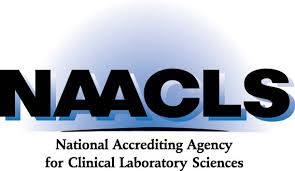
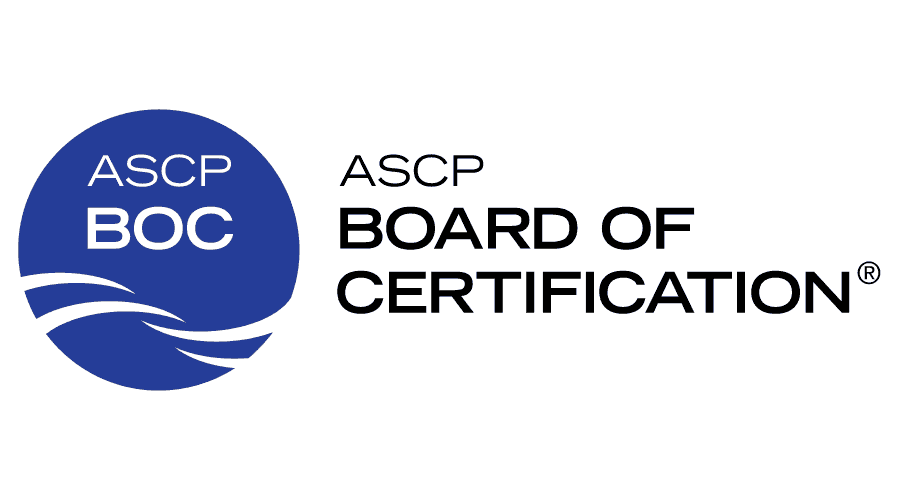
The MLS program at AQU is designed to prepare students for a model of educational system based upon scientific and technological excellence that enables the students to pursue their particular careers. The program seeks to qualify students in MLS with high professional competence through different means by:
- Providing strong clinical and basic scientific background that enables the students to work in clinical laboratories and participate in the future development of these laboratories.
- Providing strong clinical training in a wide range of areas of clinical diagnosis of diseases that develop their laboratory techniques and skills.
- Emphasizing professional integrity and pride throughout the program.
- Motivating the students through understanding their important role in clinical diagnosis and decision-making in patient care.
- Providing a high-quality academic program and clinical learning experiences that adopt a commitment to quality patient care and concern for the dignity and rights of all patients.
- Maintaining the high standard of the MLS profession.
- Preparing the students to cope with the new advances in instrumentation and modern techniques in clinical laboratory testing.
- Equipping the students with the necessary skills for communication with other medical teams and community members.
- Giving opportunities for faculty and the professional community to work with students to further the body of knowledge in the profession through research and scholarship.
- Preparing the students for national and international licensing and accreditation.
Upon the completion of a bachelor’s degree in Medical Laboratory Sciences, the student will be able to have the following competencies:
Knowledge
- PLO1: Demonstrate knowledge in core MLS and the related methodologies in hematology and homeostasis, microbiology, immunology and serology, transfusion medicine, clinical chemistry, and molecular genetics.
- PLO2: Acquire knowledge in medical laboratory safety, administration, and management of human resources, finance, and operations.
Intellectual Skills
- PLO3: Evaluate and interpret laboratory results utilizing critical thinking skills.
- PLO4: Solve problems arising in medical laboratory practices and contribute to the development of the professional practice.
- PLO5: Discuss the impact of total quality management on laboratory operations, including relevance to the pre-analytical, analytical, and post-analytical stages of the testing process.
Professional Skills
- PLO6: Perform clinical laboratory testing according to the standardized protocols and procedures utilizing quality control.
- PLO7: Conduct scientific research in medical laboratory-related fields.
Attitudes and Values
- PLO8: Ensure a safe and legal organizational framework within which medical laboratory scientists operate.
- PLO9: Demonstrate ethical behavior and professionalism, including maintaining the confidentiality of patient information.
- PLO10: Demonstrate an ability to communicate and work in teams effectively.
Essential Functions are the non-academic standards that a student must be able to master to participate successfully in the MLS program and become employable. Examples of this program’s essential functions are provided below. If you are not sure that you will be able to meet these essential functions, please consult with the Department’s head for further information.
Essential Visual and Observation Skills for MLS
The MLS student must be able to:
- Observe laboratory demonstrations in which biological (i.e., body fluids, culture materials, tissue sections) and cellular specimens are tested for their biochemical, hematological, immunological, microbiological, and histochemical components.
- Characterize the color, odor, clarity, and viscosity of biological samples, reagents, or reaction products.
- Utilize a clinical grade binocular microscope to discriminate between the fine structural and color (hue, shading, and intensity) differences of microscopic specimens.
- Read and comprehend text, numbers, and graphs displayed in print and on video monitor.
- Recognize alarms.
Essential Motor and Mobility Requirements for MLS
The MLS student must be able to:
- Perform laboratory testing adhering to existing laboratory safety standards.
- Perform moderately taxing continuous physical work, often requiring prolonged sitting and/or standing, over several hours.
- Travel to assign clinical laboratory Practicum sites.
- Reach laboratory bench tops and shelves, patients lying in hospital beds or patients seated in specimen collection furniture.
- Grasp, hold, transport, and utilize specimens, reagents, hazardous chemicals and equipment in a safe manner as needed to perform laboratory testing.
- Obtain patient specimens in a timely, safe, and professional manner (e.g. perform phlebotomy).
- Use laboratory equipment (e.g. pipettes, inoculating loops, test tubes) and instruments to perform laboratory procedures according to established laboratory guidelines.
- Use a computer keyboard to operate laboratory instruments and to calculate, record, evaluate, and transmit laboratory information.
- Troubleshoot and correct basic equipment malfunctions.
Essential Communication Requirements for MLS
The MLS student must be able to:
- Read and understand technical and professional materials, (i.e. textbooks, journal articles, handbooks, and instruction manuals).
- Follow oral and written instructions independently.
- Clearly instruct patients regarding specimen collection.
- Demonstrate sensitivity, confidentiality, and respect when speaking with patients.
- Communicate clearly, accurately, and tactfully with faculty members, student colleagues, staff, and other healthcare professionals orally and in a recorded format (writing, typing, graphics, or telecommunications).
Essential Intellectual Requirements for MLS
The MLS student must be able to:
- Comprehend measure, calculate, reason, integrate, analyze, evaluate, correlate, problem-solve, and compare.
- Recognize abnormal laboratory results (e.g. patient and QC) and take appropriate action.
- Demonstrate critical thinking and judgment skills appropriate to a given situation.
- Independently prepare papers, prepare laboratory reports, and take paper, computer and laboratory practical examinations.
Essential Behavioral Requirements for MLS
The MLS student must be able to:
- Organize work and perform multiple tasks within given time constraints and under stressful conditions while maintaining the ability to communicate clearly.
- Be able to manage the use of time and be able to systematize actions in order to complete tasks within realistic constraints.
- Possess the emotional health necessary to effectively apply knowledge and exercise appropriate judgment.
- Be able to provide professional and technical services while experiencing the stresses of task-related uncertainty (i.e. ambiguous test order, ambivalent test interpretation), emergent demands (i.e. “stat” test order), and distracting environment (i.e., high noise levels, crowding).
- Be flexible and creative and adapt to professional and technical change.
- Recognize potentially hazardous materials, equipment, and situations and proceed safely in order to minimize risk of injury to patients, self, and nearby individuals.
- Adapt to working with unpleasant biologicals.
- Support and promote the activities of fellow students and of healthcare professionals. Promotion of peers helps furnish a team approach to learning, task completion, problem-solving, and patient care.
- Be honest, compassionate, ethical, and responsible. The student must be forthright about errors or uncertainty. The student must be able to critically evaluate her or his own performance, accept and act on constructive criticism, and look for ways to improve (i.e. participate in enriched educational activities).
- Show respect for individuals of different age, ethnicity, and religion, exercise independent judgment, and accept responsibility for their own work.
In addition, the student must follow all established policies and procedures of the program and clinical affiliate sites.
Graduates are eligible to take the certification examination as a Medical Laboratory Scientist (MLS) of the Board of Certification of the American Society for Clinical Pathology (ASCP). Granting of the degree is not contingent upon the student’s passing any type of external certification examination.
For more information about certification, go to www.ascp.org/Board-of-Certification
Students are accepted at AQU to obtain a bachelor’s degree in MLS according to the followings:
- The student must have a Palestinian General Secondary School Certificate or its equivalent in the scientific stream as the following:
- Regular acceptance: Student with an average ≥82%.
- Conditional acceptance: Student with an average between 80%-82%.
- To be free of communicable diseases according to a medical report from a reference approved by AQU.
- The student must sign consent forms with a written approval in the Registration and Admission department at AQU for the terms and standards of the MLS program.
- The student must take an English language level exam specified by the University, and to pass successfully any University’s English language requirements during the first academic year.
Graduated students have the opportunity to work in one of the following fields:
- Laboratories of hospitals and health centers
- Private and research laboratories
- Private and public health services
- Pharmaceutical and biotechnology companies
- Food industry and water laboratories
- Pursue their higher education in related fields
Semester Study Plan for B.Sc. in MLS starting Spring 2022
| Study plan for students joining the Medical Laboratory Science program in Fall (Revised ـJuly 2022) TOTAL CH: 140 | ||||||||||||
| Fall 1st Semester | Spring 2nd Semester | |||||||||||
| Code | Course | T | P | Cr | Prereq. | Code | Course | T | P | Cr | Prereq. | |
| 0200101 | Biology for Health Professions | 3 | 0 | 3 | 0202106 | Medical Physics | 3 | 0 | 3 | |||
| 0202101 | Biology Lab for Health Professions | 0 | 3 | 1 | 0202105 | Organic Chemistry | 2 | 3 | 3 | |||
| 0202102 | General Chemistry | 3 | 0 | 3 | 0202201 | Anatomy and Physiology I | 3 | 0 | 3 | 0200101 | ||
| 0202103 | General Chemistry Lab | 0 | 3 | 1 | 0400171 | English Skills Level 1B | 3 | 0 | 3 | |||
| 0400170 | English Skills Level 1A | 3 | 0 | 3 | University Required Course | 3 | 0 | 3 | ||||
| University Required Course | 2 | 0 | 2 | University Required Course | 3 | 0 | 3 | |||||
| University Required Course | 2 | 0 | 2 | TOTAL | 18 | |||||||
| University Elective Course | 3 | 0 | 3 | |||||||||
| TOTAL | 18 | |||||||||||
| Summer Semester | ||||||||||||
| Code | Course | T | P | Cr | Prereq. | |||||||
| University Required Course | 2 | 0 | 2 | |||||||||
| University Elective Course | 3 | 0 | 3 | |||||||||
| 0400172 | English Skills Level 2 | 4 | 0 | 4 | ||||||||
| TOTAL | 9 | |||||||||||
| Fall 3rd Semester | Spring 4th Semester | |||||||||||
| Code | Course | T | P | Cr | Prereq. | Code | Course | T | P | Cr | Prereq. | |
| 0200202 | Medical Ethics | 2 | 0 | 2 | 0200201 | First Aid and Patient Safety | 2 | 0 | 2 | |||
| 0202204 | Medical Microbiology | 3 | 3 | 4 | 0202203 | Clinical Laboratory Instrumentation | 2 | 3 | 3 | 0202106 | ||
| 0202104 | Analytical Chemistry | 2 | 3 | 3 | 0202102, 0202103 | 0202206 | Biochemistry | 4 | 0 | 4 | 0202105 | |
| 0202205 | Cell Biology | 3 | 0 | 3 | 0200101 | 0202207 | Medical Genetics | 3 | 0 | 3 | ||
| 0202202 | Anatomy and Physiology II | 3 | 0 | 3 | 0202201 | 0400185 | English Communication Skills | 2 | 0 | 2 | ||
| 0400184 | Paragraph Writing | 2 | 0 | 2 | 0202303 | Diagnostic Parasitology | 2 | 3 | 3 | |||
| TOTAL | 17 | TOTAL | 17 | |||||||||
| Fall 5th Semester | Spring 6th Semester | |||||||||||
| Code | Course | T | P | Cr | Prereq. | Code | Course | T | P | Cr | Prereq. | |
| 0202301 | Molecular Biology | 2 | 3 | 3 | 0202207 | 0200301 | Biostatistics for Health Professions | 3 | 0 | 3 | ||
| 0202302 | Diagnostic Microbiology | 3 | 3 | 4 | 0202204 | 0202311 | Coagulation and Hemostasis | 2 | 3 | 3 | ||
| 0202304 | Clinical Chemistry I | 2 | 0 | 2 | 0202310 | Blood Banking | 3 | 3 | 4 | |||
| 0202306 | Clinical Hematology I | 2 | 3 | 3 | 0202305 | Clinical Chemistry II | 2 | 3 | 3 | 0202304 | ||
| 0202308 | Immunology and Serology I | 3 | 0 | 3 | 0202307 | Clinical Hematology II | 2 | 0 | 2 | 0202306 | ||
| University Required Course | 2 | 0 | 2 | 0202309 | Immunology and Serology II | 1 | 3 | 2 | 0202308 | |||
| TOTAL | 17 | 0202462 | Department Elective (Virology) | 2 | 0 | 2 | ||||||
| Summer Semester | TOTAL | 19 | ||||||||||
| Code | Course | T | P | Cr | Prereq. | |||||||
| 0202461 | Department Elective (Mycology) | 2 | 0 | 2 | ||||||||
| 0202456 | Clinical Practice in Blood Banking | 1 | 0202310 | |||||||||
| TOTAL | 3 | |||||||||||
| Fall 7th Semester | Spring 8th Semester | |||||||||||
| Code | Course | T | P | Cr | Prereq. | Code | Course | T | P | Cr | Prereq. | |
| 0200302 | Scientific Research for Health Professions | 3 | 0 | 3 | 0200301 | 0202450 | Graduation Project* | 1 | 0 | 1 | 0200302 | |
| 0200401 | Health Accreditation | 2 | 0 | 2 | 0202452 | Clinical Practice in Chemistry* | 1 | 0202305, 0202401 | ||||
| 0202402 | Body Fluids | 2 | 3 | 3 | 0202202 | 0202453 | Clinical Practice in Hematology* | 1 | 0202307, 0202311 | |||
| 0202401 | Clinical Endocrinology | 3 | 0 | 3 | 0202206 | 0202454 | Clinical Practice in Immunology* | 1 | 0202309 | |||
| 0202403 | Laboratory Management | 1 | 0 | 1 | 0202455 | Clinical Practice in Microbiology* | 1 | 0202302, 0202303 | ||||
| 0202468 | Department Elective (Toxicology) | 2 | 0 | 2 | 0202457 | Professional Development* | 1 | Department approval | ||||
| 0202465 | Department Elective (Introduction to Bioinformatics) | 2 | 0 | 2 | TOTAL | 6 | ||||||
| TOTAL | 16 | |||||||||||
*Subject to departmental approval
1. Sc. Program Requirements
A minimum of 130 credit hours are required to complete the major in Medical Laboratory Sciences, in addition to 10 credit hours in English Courses (depending on the level of the student in the English Placement Test):
| Requirements | Required | Electives | Total credits |
| University requirements | 28 | 6 | 34 |
| Faculty requirements | 15 | 0 | 15 |
| Department requirements | 83 | 8 | 91 |
| Total credits | 140 (130 + 10 English) | ||
10 credit hours for the English language which Depends on the Level of the Exam i.e.
- Level A will not be exempted from any English course
- Level B will be exempted from 0400170
- Level C will be exempted from 0400170 and 0400171
- Level D will be exempted from 0400170, 0400171 and 0400172
- N.B.: Course number beginning with 0200 refers to Faculty Courses.
- Course number beginning with 0202 refers to MLS Department Courses.
- The last three digits will be for the year of offering the course and the rest is for serial numbers, serial numbers ≥ 60 are dedicated for elective courses.
MLS Curriculum
University Requirements (34 Credit Hours)
1. University Required (UR) Courses (28 Credit Hours)
| Course Title | Course Number | Credit Hours |
| Arabic Language Skills | 0400101 | 2 |
| Jerusalem Throughout History | 0400120 | 2 |
| Palestine: Nature & Environment | 0400121 | 2 |
| Islamic Culture | 0400122 | 2 |
| World Civilizations | 0400128 | 3 |
| Language & Thinking | 0400150 | 3 |
| English Skills Level 1A | 0400170 | 3 |
| English Skills Level 1B | 0400171 | 3 |
| English Skills Level 2 | 0400172 | 4 |
| Paragraph Writing | 0400184 | 2 |
| English Communication Skills | 0400185 | 2 |
2. University Elective (UE) Courses (6 Credit Hours): Students study either six credits from table A (I & II of the same language) or any two course (six credits) from table B.
Table A
| No. | Course Title | Course Number | Credit Hours |
| 1. | Hebrew I (beginners) | 0400111 | 3 |
| 2. | Hebrew II (intermediate) | 0400112 | 3 |
| 3. | French Language I (beginners) | 0400113 | 3 |
| 4. | French Language II (intermediate) | 0400114 | 3 |
| 5. | German Language I (beginners) | 0400115 | 3 |
| 6. | German Language II (intermediate) | 0400116 | 3 |
| 7. | Spanish Language I (beginners) | 0400117 | 3 |
| 8. | Spanish Language II (intermediate) | 0400118 | 3 |
Table B
| No. | Course Title | Course Number | Credit Hours |
| 1. | Fine Arts | 0400130 | 3 |
| 2. | Introduction to Music | 0400131 | 3 |
| 3. | Literary Textual Appreciation | 0400132 | 3 |
| 4. | Woman and Man in Human Societies | 0400133 | 3 |
| 5. | Islamic Studies | 0300133 | 3 |
| 6. | Democracy & Human Rights | 0500140 | 3 |
| 7. | Current & Modern Issues in Arabic Thinking | 0400141 | 3 |
| 8. | Life & Science | 0300142 | 3 |
| 9. | Peaceful Solution of Conflicts | 0500143 | 3 |
| 10. | Communication Skills | 0403131 | 3 |
| 11. | Society and Law | 0500145 | 3 |
| 12. | Philosophy of Science and History | 0409135 | 3 |
| 13. | Special Topics | 0400148 | 3 |
Faculty Required Courses
Biology for Health Professions (0200101) 3 credit hours
Through the study of this introductory course, students will describe and integrate basic biological principles and define the major biological terms. Themes that will be covered in this course include scientific skills, the characteristics and classification of living things and how they differ from inanimate objects, chemical basis of life, cell structure and biology, the genetic basis of life, evolution, classification of organisms, and how cells form tissues, organs, systems and how these systems interact with each other as well as major human body systems.
First Aid and Patient Safety (0200201) 2 credit hours
Through the study of this course, students will learn how to respond appropriately to emergency situations. Themes that will be covered in this course include: breathing and cardiac emergencies; bleeding and injuries including soft tissues, muscle, bone and joint injuries; and head, neck and spinal injuries; sudden illness (bites/stings), and substance (abuse/misuse), accidents (traffic, water, burns), and patient safety principles.
Medical Ethics (0200202) 2 credit hours
Through the study of this course, students will learn the ethical theories and how to solve and illuminate problems in the health care system on an ethical basis. The themes covered in this course include fundamental medical ethics concepts; making good medical/moral judgments for self and others; ethical regulations for health professions and also for medical research; and the current revolution in bioethical reasoning and methods in bioethics.
Biostatistics for Health Professions (0200301) 3 credit hours
Through the study of this course, students will learn statistical techniques applicable to Medical Sciences. It will be largely non-mathematical, concentrating on concepts rather than mathematical theory. Themes covered in this course include: descriptive statistics measures and their calculations: data representation through Tables and Graphs; descriptive statistics and Tables using SPSS; hypothesis testing and inferential statistics using SPSS.
Scientific Research for Health Professions (0200302) 3 credit hours
Through the study of this course, students will learn the foundational research knowledge and skills needed to perform evidence-based quantitative and qualitative research methods relevant to healthcare practitioners. Themes that will be covered in this course include introducing research process, development of research questions, data collection and sampling methods, research design, literature review and citation, the typical format of research article and proposal, the scientific research critique, and the PowerPoint presentation design. Prerequisite: Biostatistics for Health Professions.
Health Accreditation (0200401) 2 credit hours
Through the study of this course, students will learn the theoretical basis of healthcare system quality programs and health accreditation. It will introduce different types of accreditations, including the ISO certification, JCI, CAP, WHO patient safety initiatives and others. It will provide an overview of the formal process of peer healthcare system assessment and review by a relevant accrediting body leading to formal recognition. The course will also introduce the standards of the accreditation systems and the requirements necessary for the health institutions to be recognized and accredited and the process of assessing their level of performance in relation to established standards.
Department Required Courses
Biology Lab. for Health Professions (0202101) 1 credit hour
Through the study of this practical course, students will do laboratory experiments that deal with the topics covered by the theoretical part of the course. Themes that will be covered in this course include the characteristics of living cells, tissues and organs, systems and the whole organism, the chemical characteristics of cells and the anatomy of systems are also covered.
General Chemistry (0202102) 3 credit hours
Through the study of this introductory course, students will describe and integrate the basic concepts in the chemical field and develop basic chemical skills and understanding of chemical processes. Themes that will be covered in this course include the fundamental principles of chemistry, with emphasis on atomic structure, mole concepts, stereochemistry, chemical reactions in aqueous solution, acid-base equilibrium, thermodynamics, and chemical kinetics.
General Chemistry Lab. for Health Professions (0202103) 1 credit hour
Through the study of this practical course, students will do laboratory experiments that deal with the topics covered by the theoretical part of the course. Such as/ quantity application, acid base techniques and titration.
Analytical Chemistry (0202104) 3 credit hours
Through the study of this introductory course, the students will be introduced to sampling, error and statistical analysis as applied to analytical chemistry. Specific analytical techniques or concepts covered are gravimetric, complexometric, volumetric, analysis such as acid-base titration and standardization, oxidation-reduction, and precipitation titration. Prerequisite: General Chemistry, General Chemistry Lab.
Organic Chemistry (0202105) 3 credit hours
Through the study of this course, students will learn and integrate the basic principles and applications of organic chemistry, focusing primarily on the structure and reactivity of organic molecules. Themes that will be covered in this course include the atomic properties of carbon; covalent bonding and shapes of molecules; stereoisomerism and chirality; and the major groups of organic compounds. Prerequisite: None
Medical Physics (0202106) 3 credit hours
Through the study of this introductory course, students will describe and integrate the basic principles and applications of medical physics. Themes that will be covered in this course include the fundamental principles of heat and laws of thermodynamics; electromagnetic waves and light; optics; electric fields, forces, potential, and capacitance; subatomic particle physics, as well as electrical circuits, current, and resistance.
Anatomy and Physiology I (0202201) 3 credit hours
Through the study of this course, students will learn the concept of homeostasis and the contribution of body systems in maintaining homeostasis, the frame of reference for anatomical studies and anatomical language (body regions and landmarks, planes and axis, and body cavities). The anatomy and physiology of the following systems will be covered: integumentary system, osseous tissue, axial and appendicular skeleton, articulations, the nervous system including neural tissue, spinal cord and spinal nerves, brain, and cranial nerves, somatic and autonomic nervous system, in addition to major senses including vision, hearing. Prerequisite: Biology for Health Professions.
Anatomy and Physiology II (0202202) 3 credit hours
Through the study of this introductory course, the students will cover the physiology of the muscular tissues. In addition, the anatomy and physiology of the other systems will be explained including cardiovascular system, respiratory system, digestive system, reproductive system, and urinary system. Prerequisite: Anatomy and Physiology I.
Clinical Laboratory Instrumentation (0202203) 3 credit hours
Through the study of this course, students will learn the principles of instrumental analysis & its implementation in the determination of substances in the clinical laboratory. Examples include absorption of the light spectrum, fluorescence, electrophoresis, chromatography, and radioactivity. Prerequisite: Medical Physics
Medical Microbiology (0202204) 4 credit hours
The purpose of the Medical Microbiology course is to provide basic knowledge on a broad spectrum of bacterial species with particular focus on their morphology, physiology, genetics and metabolism. The course is mainly centered on understanding the relation between the host and the pathogen’s epidemiological aspects, the mode of disease transmission, microbial pathogenicity, mechanism of virulence, antibiotic susceptibility testing and laboratory diagnosis, and the methods of prevention. The course lectures are accompanied with practical applications to help the student substantiate the attained theoretical knowledge and acquire new laboratory skills. Prerequisite: None
Cell Biology (0202205) 3 credit hours
Through the study of this course, students will describe the relationships between molecular and organelle structures in relation to cell function. Themes that will be covered in this course include the cell and macromolecules; cytoskeleton, cell cycle, and mitosis; signal transduction and protein synthesis, folding, modification, trafficking transport, and secretion. Prerequisite: Biology for Health Professions.
Biochemistry (0202206) 4 credit hours
Through the study of this course, students will study the main concepts of biochemistry and their relation to other Medical Laboratory Sciences. Themes that will be covered in this course include: The nature of chemical constituents of the living organisms, including water, proteins, carbohydrates, lipids, nucleic acids, and enzymes; Hydrogen ion concentration of biological systems and the buffering activity; The integration and control of the metabolism of carbohydrates, lipid and nitrogen-containing compounds. Prerequisite: Organic Chemistry.
Medical Genetics (0202207) 3 credit hours
Through the study of this course, students will discuss transcriptional, and translational machinery and regulation of gene expression, This course will also provide students with up-to-date information about various applications of genetics to human health, including studies of the inheritance of diseases in families, mapping of disease genes to specific locations on chromosomes, analyses of the molecular mechanisms through which genes cause disease, diagnosis, and treatment of genetic disease, and genetic counseling, in which information regarding risks, prognoses, and treatments is communicated to patients and their families. Prerequisite: None
Molecular Biology (0202301) 3 credit hours
Through the study of this course, students will study the various gene technologies such as restriction mapping, genetic libraries, cloning, gene expressions to produce proteins of interest, DNA and RNA purification, DNA sequencing, various types of PCR and their applications in diagnosis and mutation analysis. Future possibilities, limitations and ethics of gene technology will also be discussed. Practical experiments are designed to reinforce the theoretical background. Prerequisite: Medical Genetics.
Diagnostic Microbiology (0202302) 4 credit hours
Through the study of this course, students will concentrate on the role of the clinical laboratory in the diagnosis of infectious diseases. It addresses common procedures used to collect clinical specimens, their handling and processing. It also emphasizes on the characteristics of pathogenic bacteria, methods of their isolation and identification. It helps the student to perform the common procedures for antibiotic susceptibility testing & the recent advances in the diagnosis of infectious diseases. Prerequisite: Medical Microbiology.
Diagnostic Parasitology (0202303) 3 credit hours
Through the study of this course, students will discuss the different types of endo and ecto parasites such as protozoa, helminths, and arthropods. It deals with each parasite from different aspects such as life cycle, morphology, and human diseases caused by parasites. It concentrates on conventional as well as advanced diagnostic procedures to identify each type in the different clinical specimen that can be collected from patients. It also discusses the transmission means of parasites and measures of control and prevention.
Clinical Chemistry I (0202304) 2 credit hours
Throughout this course, students will study the various types of specimens that are used in the clinical chemistry laboratory, and the variables that affect the level of various analytes in the blood. The course also discusses criteria for selecting methods for analysis, in addition to, method comparison, reference ranges, radioimmunoassay (RIA) and tumor markers. In addition to the detailed application of the quality assurance in clinical chemistry. The course will also cover the concept of Point of Care Testing and application in the medical lab. Prerequisite: None.
Clinical Chemistry II (0202305) 3 credit hours
This course is a continuation of Clinical Chemistry I. Its aim is to study the various methods of determination of the major analytes of the blood. These include sugars, carbohydrates, proteins, blood gases and electrolytes, non-protein nitrogen, lipids and lipoproteins and clinical enzymology. The course also discusses the pathophysiology related to the change of these analytes in the blood. The practical part of the course includes performing experiments detecting the various analytes mainly in blood. Prerequisite: Clinical Chemistry I.
Clinical Hematology I (0202306) 3 credit hours
Through the study of this course, students will learn the origin of blood cells, their differentiation, function, and abnormalities. It also covers various types of anemia including nutritional, hemolytic, and inherited anemia. The laboratory procedures in hematology will also be covered to teach the students blood collection and the diagnostic methods used in laboratory hematology. Prerequisite: None.
Clinical Hematology II (0202307) 2 credit hours
This course is a continuation of Hematology I. It discusses white blood cell disorders such as leukemia, lymphoma and other blood diseases including chronic myeloproliferative disorders, multiple myeloma, lipid storage disease, with emphasis on clinical and laboratory findings. Prerequisite: Clinical Hematology I.
Immunology and Serology I (0202308) 3 credit hours
Through the study of this course, students will discuss the basic principles of immunology which include the immune system, its organs, cells, natural functions in protecting the body from foreign bodies such as bacteria, viruses, parasites, and their secretions. It discusses the importance of the immune system in tissue and organ transplantation, immunologically mediated diseases such as auto-immune diseases hypersensitivity and immune deficiencies. Prerequisite: None
Immunology and Serology II (0202309) 2 credit hours
Through the study of this course, which is a practical complementary course of immunology, students will discuss the principles of serologic testing and its application in the diagnosis of certain infectious and non-infectious diseases using a variety of immunological methods. Prerequisite: Immunology and Serology I.
Blood Banking (0202310) 4 credit hours
Through the study of this course, students will learn the fundamentals of immunohematology, blood groups, donor selection, blood collection, blood processing, storage, and preparation of blood components. It covers methods and techniques used in blood banking such as blood grouping, Rh typing, antibody detection and identification, antiglobulin tests, and cross-matching. Prerequisite: None
Coagulation and Hemostasis (0202311) 3 credit hours
Through the study of this course, students will learn the origin and development of blood platelet and the diseases associated with structural and/or functional abnormalities of the platelet. Also, it discusses the coagulation factors involved in blood clotting and the associated diseases. It covers the laboratory methods used to detect quantitative and qualitative abnormalities in elements of the coagulation process. Prerequisite: None.
Clinical Endocrinology (0202401) 3 credit hours
Through the study of this course, students will describe and identify the properties, characteristics, and biochemistry of hormones and their role in regulating the functions of the different body organs. Themes that will be covered in this course include an overview of the endocrine system; hypothalamic-pituitary axis; thyroid gland; parathyroid gland; and pancreatic hormones. In addition, laboratory testing of hormones and interpretation of results will be covered. Prerequisite: Biochemistry.
Body Fluids (0202402) 3 credit hours
Through the study of this course, students will learn the characteristics of various body fluids in health and disease. These body fluids include urine, cerebrospinal fluid, semen, synovial fluid, amniotic fluid, gastric juice, saliva, and sweat. At the end of the course, the student will be able to process and examine these fluids in the various relevant laboratory sections and levels. Prerequisite: Anatomy and Physiology II.
Laboratory Management (0202403) 1 credit hour
Through the study of this course, students will study the administrative functions of the lab and learn how to operate the clinical laboratory effectively and efficiently. Themes that will be covered in this course include director and first line supervisor duties including planning, organizing, decision making and problem-solving, staffing, lab design, purchasing, implementing new machines and methods, quality control, and cost effectiveness in lab work.
Graduation Project (0202450) 1 credit hour
Through the study of this course, each group of five students performs full scientific research on a topic related to Medical Laboratory Sciences. At the end of this course, students will prepare a scientifically written report outlining their research results and present a lecture discussing the important topic related to their research work done throughout this course. The student chooses the topic with the help of the academic advisor making use of all available resources at Al-Quds University. Prerequisite: Scientific Research for Health Professions.
Clinical Practice in Chemistry (0202452) 1 credit hours
Supervised clinical practice in the clinical chemistry laboratory with experience in procedures and methods of evaluating and monitoring the presence and progression of disease, operation of instrumentation, following quality assurance practices, and using appropriate safety measures. Prerequisites: Clinical Chemistry II and Clinical Endocrinology
Clinical Practice in Hematology (0202453) 1 credit hours
Supervised clinical practice in the clinical hematology laboratory with experience in procedures and methods of evaluating and monitoring the presence and progression of disease, operation of instrumentation, following quality assurance practices, and using appropriate safety measures. Prerequisites: Clinical Hematology II & Coagulation and Hemostasis
Clinical Practice in Immunology (0202454) 1 credit hours
Supervised clinical practice in the clinical immunology laboratory with experience in procedures and methods of evaluating and monitoring the presence and progression of disease, operation of instrumentation, following quality assurance practices, and using appropriate safety measures. Prerequisites: Immunology and Serology II
Clinical Practice in Microbiology (0202455) 1 credit hours
Supervised clinical practice in the clinical microbiology laboratory with experience in procedures and methods of evaluating and monitoring the presence and progression of disease, operation of instrumentation, following quality assurance practices, and using appropriate safety measures. Prerequisites: Diagnostic Parasitology & Diagnostic Microbiology.
Clinical Practice in Blood Banks (0202456) 1 credit hours
Supervised clinical practice in the clinical immunohematology laboratory with experience in procedures and methods of evaluating and monitoring the presence and progression of disease, operation of instrumentation, following quality assurance practices, and using appropriate safety measures. Prerequisites: Blood Banking
Professional Development (0202457) 1 credit hours
Study of the national, regional, and local professional associations related to Medical Laboratory Sciences; professional certifications and licensure requirements; mechanisms and requirements for continuing education; broad knowledge of the topics emphasized in certification examinations. The course will enhance problem solving skills by integrating multiple Medical Laboratory fields utilizing literature reviews to assess case studies. The course is designed to focus on integration and synthesis of knowledge acquired in previous courses. Competencies to be reinforced include leadership, critical thinking, communication, analytical skills, ethical issues, professionalism, and the skills to work in a healthcare setting. Overall, the course is aimed to facilitate and enhance the student’s application of MLS theory, laboratory experience, and test data interpretation learned in campus courses to an active clinical laboratory setting. Prerequisites: Department Approval.
Department Elective Courses
Food Microbiology (0202460) 2 credit hours
This course covers the characteristic of microbial growth, intrinsic and extrinsic factors and their relationship to microbial growth; the principles of food fermentation and the role of beneficial microbes; the isolation and identification of pathogenic microorganisms involved in spoilage and intoxication of various kinds of food, as well as qualitative and quantitative microbiological analysis. It also addresses the basic concepts of food contamination, processing, and preservation. Prerequisite: None.
Mycology (0202461) 2 credit hours
This course discusses the different types of yeast and molds. It concentrates on the different pathogenic molds and yeast that cause human diseases such as cutaneous to systemic mycosis. It also discusses the growth and identification and antimicrobial testing of different types of fungi. Prerequisite: None
Through the study of this course, the students will discuss the general characteristics of viruses with more emphasis on animal viruses, with respect to classification, multiplication and the types of their interaction with the host. Also, it discusses epidemiological aspects of viral infections with respect to spread, means of prevention and control. Selected important viruses and emerging viral infection will also be discussed. Prerequisite: None.
Molecular Diagnosis (0202463) 2 credit hours
Through the study of this course, the students will learn the applications of molecular biology in Laboratory Medicine. The course will emphasize the molecular principles and applications of DNA and RNA isolation, amplification, hybridization, and analysis for diagnostic purposes. The course will cover specific diagnostic applications in microbiology (bacteriology, virology, and parasitology), hematology, hematological malignancies, and some genetic diseases. Prerequisite: None
Introduction to Public Health and Epidemiology (0202464) 2 credit hours
This course is an introductory course to the theoretical and practical fundamentals of epidemiology and public health. In this course, emphasis will be placed on principles of designing, interpreting and analyzing epidemiological studies in public health problems. In addition, the concepts of disease occurrence, association, and causation will be introduced and how bias can be evaluated and avoided. Ethical considerations in conducting and disseminating findings of epidemiological studies will be also explained. Finally, the application of epidemiology in public health and public health policies will also be covered in this course. Prerequisite: None
Introduction to Bioinformatics (0202465) 2 credit hours
This course will introduce to the students the bioinformatics concepts and practice. The topics that will be covered include biological databases, sequence alignment, gene and protein structure prediction, molecular phylogenetics, genomics, and proteomics. Students will gain practical experience with bioinformatics tools and develop basic skills in the collection and presentation of bioinformatics data. Prerequisite: None.
Principles of Pathology (0202466) 2 credit hours
Through the study of this course, students will describe, identify and characterize basic disease processes and functional impairments. Themes that will be covered in this course include cell injury and adaptive responses; inflammation: acute and chronic, and tissue repair; and neoplasms including their nomenclature, biology of benign and malignant neoplasms. Prerequisite: None.
Introduction to Histology (0202467) 2 credit hours
Through the study of this course, students will describe, identify & characterize various normal body tissues and cells. Themes that will be covered in this course include micro techniques and microscopy in addition to the basic laboratory procedures that are required in the histology lab will be also covered as tissue preparation, sectioning, immunohistochemistry staining, and staining evaluation. Prerequisite: None
Toxicology (0202468) 2 credit hours
Through the study of this course, students will learn the biochemistry and pathophysiology of different toxic substances (toxins, venoms, drugs) and their interaction with different cellular and organ activities. Themes that will be covered in this course include toxicology principles and risk assessment; the principles of toxicokinetics, clearance, the volume of distribution and half-life; and an overview of major groups of toxins and drug abuse will be covered. Special emphasis will be on lab assessment of these toxins and drugs. Prerequisite: None.
Microbial Virulence and Pathogenesis (0202469) 2 credit hours
Through the study of this course, the basic concepts of bacterium-host relationships and exploration of virulence factors that promote colonization and survival of infecting microorganisms and virulence attribute that damage the host will be discussed. The molecular pathogenesis of selected pathogens and the importance of normal microbiota and probiotics in health will also be discussed. Prerequisite: None.
Introduction to Pharmacology (0202470) 2 credit hours
Through the study of this course, students will develop an understanding of the theoretical concepts surrounding pharmacology, such as the pharmacokinetics and pharmacodynamics of drugs, and the concepts surrounding pharmacotherapy. It gives specific information concerning cardiopulmonary, vascular, central and peripheral nervous system, and antimicrobial drug classifications, as well as common examples in each classification. Special emphasis will be on the laboratory evaluation of drugs. Prerequisite: None
Special Topics I (0202471) 1 credit hour, Special Topics II (0202472) 2 credit hours, and Special Topics III (0202473) 3 credit hours
This course introduces the new advancement in the whole field of Medical Technology. Discussion of recent published papers in the area of Medical Technology by the staff members of the Department. Guest speakers specialized in different areas of Medical Technology will be invited to discuss the recent advances in their areas. Prerequisite: None
- Successful completion of 130 Credit Hours in Medical Laboratory Sciences, in addition to 10 credit hours in English Courses (depending on the level of the student in the English Placement Test) according to the rules and regulations of the University.
- Completion of 15-week training courses (6 Credit Hours; 525 hrs.) in clinical sites assigned by the department and the Professional Development Course as the following:
- Clinical Practice in Chemistry
- Clinical Practice in Hematology
- Clinical Practice in Immunology
- Clinical Practice in Microbiology
- Clinical Practice in Blood Banking
- Professional Development
- Voluntary work (A total of 120 hours; 80 hours inside the University and 40 hours outside).
- Meet all the University criteria for graduation.
Department Head
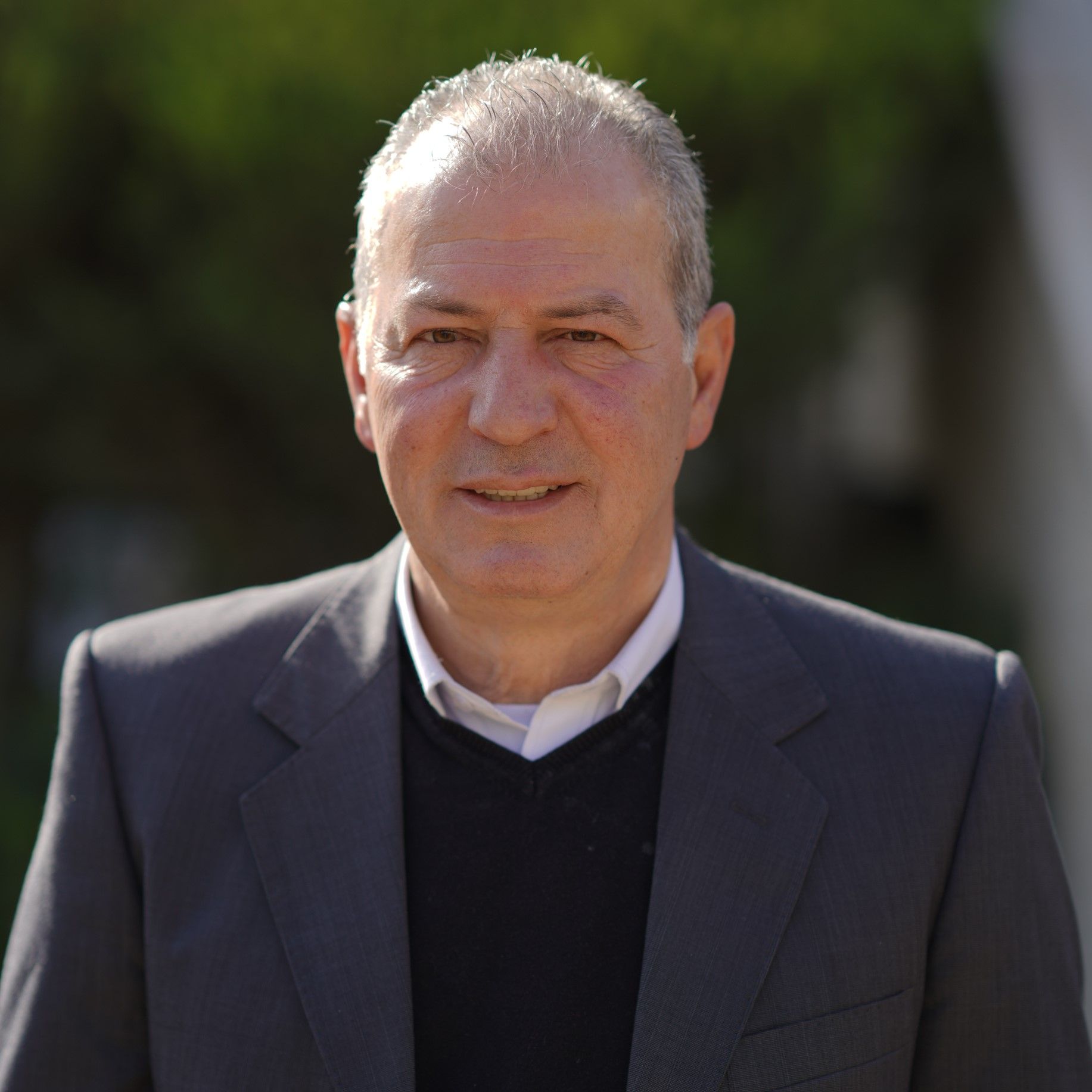
Dr. Eideh is Assistant Professor of Medical Microbiology, Department member of Medical Laboratory Sciences, Al-Quds University. He is currently the Head of the department. He teaches microbiology courses for undergraduate and graduate students. He is active in research and supervised several master students. His research interest is in the field Molecular typing of Microbial pathogens, Mechanisms of antibiotic resistance of bacterial pathogens, Molecular diagnosis of infections, and Molecular epidemiology of Nosocomial infection. He has several publication in his fields of interest.
Academic Members
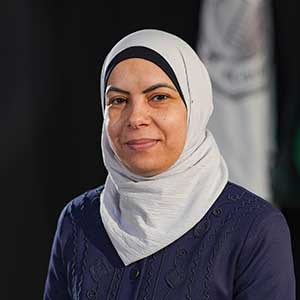
Working Experience:
2003-2006 Teaching Assistant in Chemistry department in Science College at Al-quds University. Teaching labs: organic chemistry I and organic chemistry II for science, pharmacy and medicine students, Inorganic chemistry, industrial chemistry, Fats and oil, pharmaceutics and general chemistry for science, pharmacy and medicine students.
2006 -2014 Instructor, School of Pharmacy at Al-Quds University; teaching general chemistry for dentistry, organic chemistry for dentistry, organic labs and general chemistry labs for pharmacy and medicine students.
2015- Instructor, Chemistry department at Al-Quds University; teaching organic chemistry and their lab.
Achievements:
Working on anticancer drug research with Doctor Mohammad Abualhaj
Working on research and development of cosmetic products: Shampoo, Shower gel, Conditioner and soap.
Introduce into critical Thinking course.
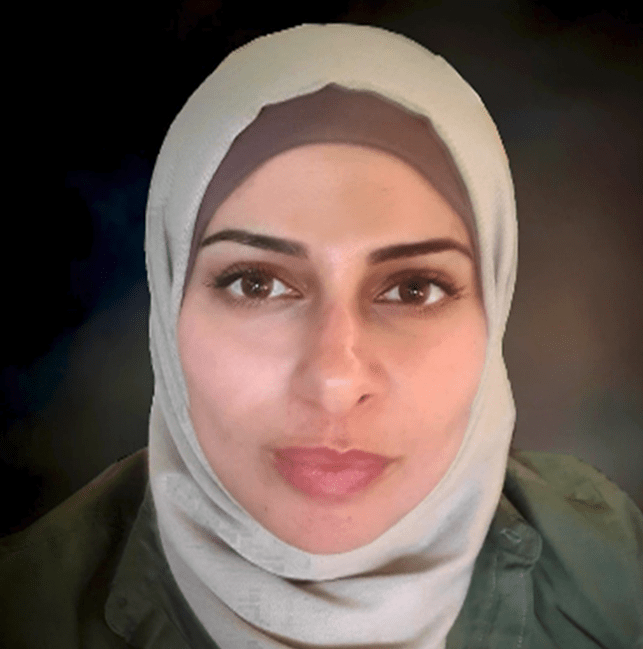
Dr. Alaa Edeh is a bioinformatician and an Assistant Professor of Genetics at the Department of Medical Laboratory Sciences, Al-Quds University. She did her PhD in Epigenetics deregulation in cancer. Her main field of experience is analyzing next generation and nanopore sequencing data using Unix operating system, Python, Nextflow and R programming languages. Currently, she is involved in developing tool for an ultra-sensitive cancer detection and monitoring using oxford Nanopore sequencing technology and integration of multiple bioinformatics tools including methylome deconvolution and estimating tumor fraction in cell-free DNA.

Dr. Eideh is Assistant Professor of Medical Microbiology, Department member of Medical Laboratory Sciences, Al-Quds University. He is currently the Head of the department. He teaches microbiology courses for undergraduate and graduate students. He is active in research and supervised several master students. His research interest is in the field Molecular typing of Microbial pathogens, Mechanisms of antibiotic resistance of bacterial pathogens, Molecular diagnosis of infections, and Molecular epidemiology of Nosocomial infection. He has several publication in his fields of interest.
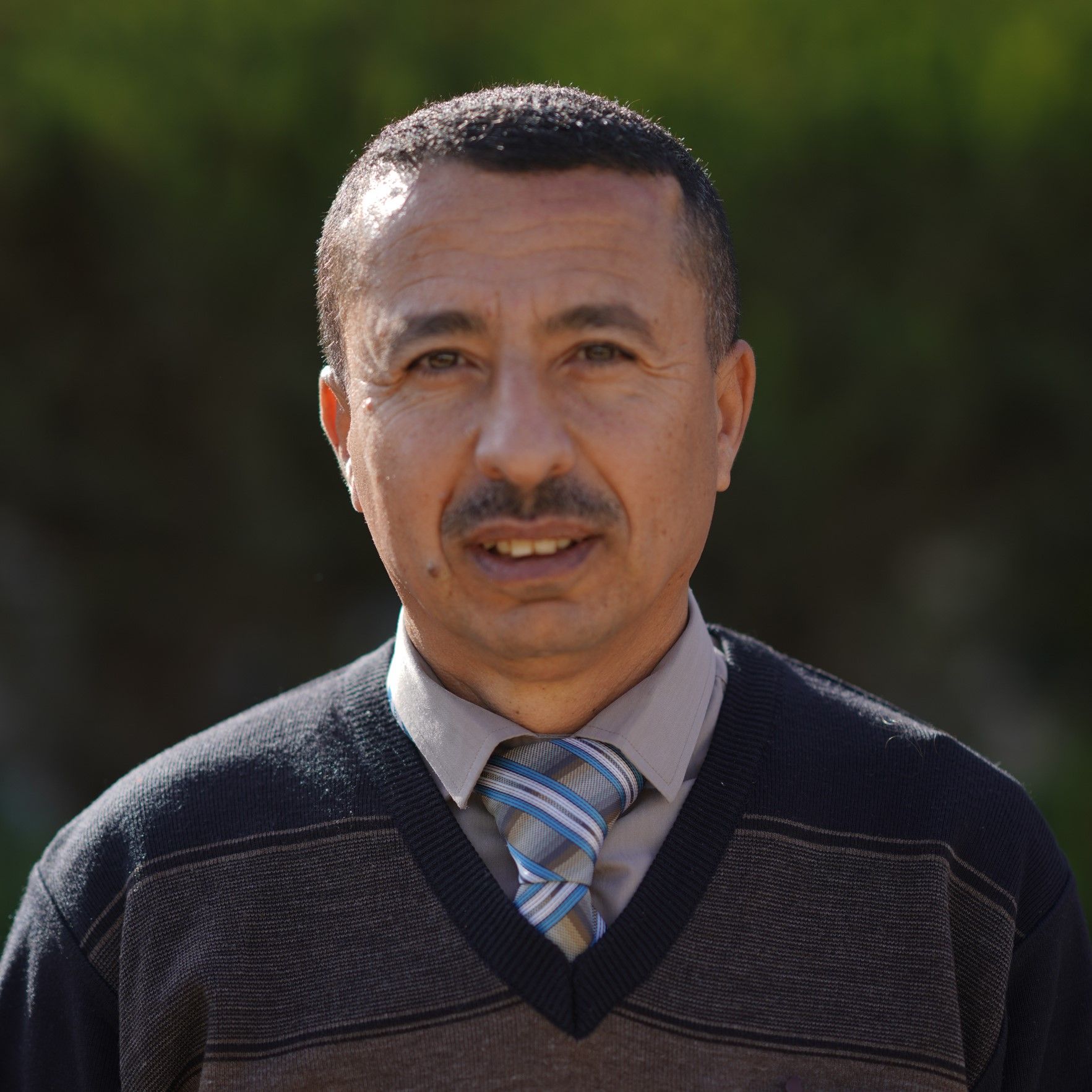
Mr. Ibrahim Amer Ghannam is a Lecturer of several courses in the field of Biostatistics and Medical Laboratory Sciences and a research activist at the Department of Medical Laboratory Sciences, Faculty of Health Professions at Al-Quds University. Mr. Ghannam is a dedicated and well skilled educator. He exhibits a strong desire to teach and learn as well as a high level of devotion. He also has a lot of experience developing and evaluating curricula since he is a member of The Faculty of Health Professions’ curriculum evaluation and upgrading committee.
Mr. Ghannam has wide experience in teaching biostatistics and scientific research for tens of times during the previous seventeen years at both the Faculty of Medicine and Faculty of health Professions at al-Quds university. Also, he made statistical analysis for several research projects, master and doctorate theses for other researchers. Also Mr. Ghannam has a good experience in teaching different courses in the field of Medical Laboratory sciences such as General Biology, Clinical Laboratory Instrumentation, and Cell Biology.
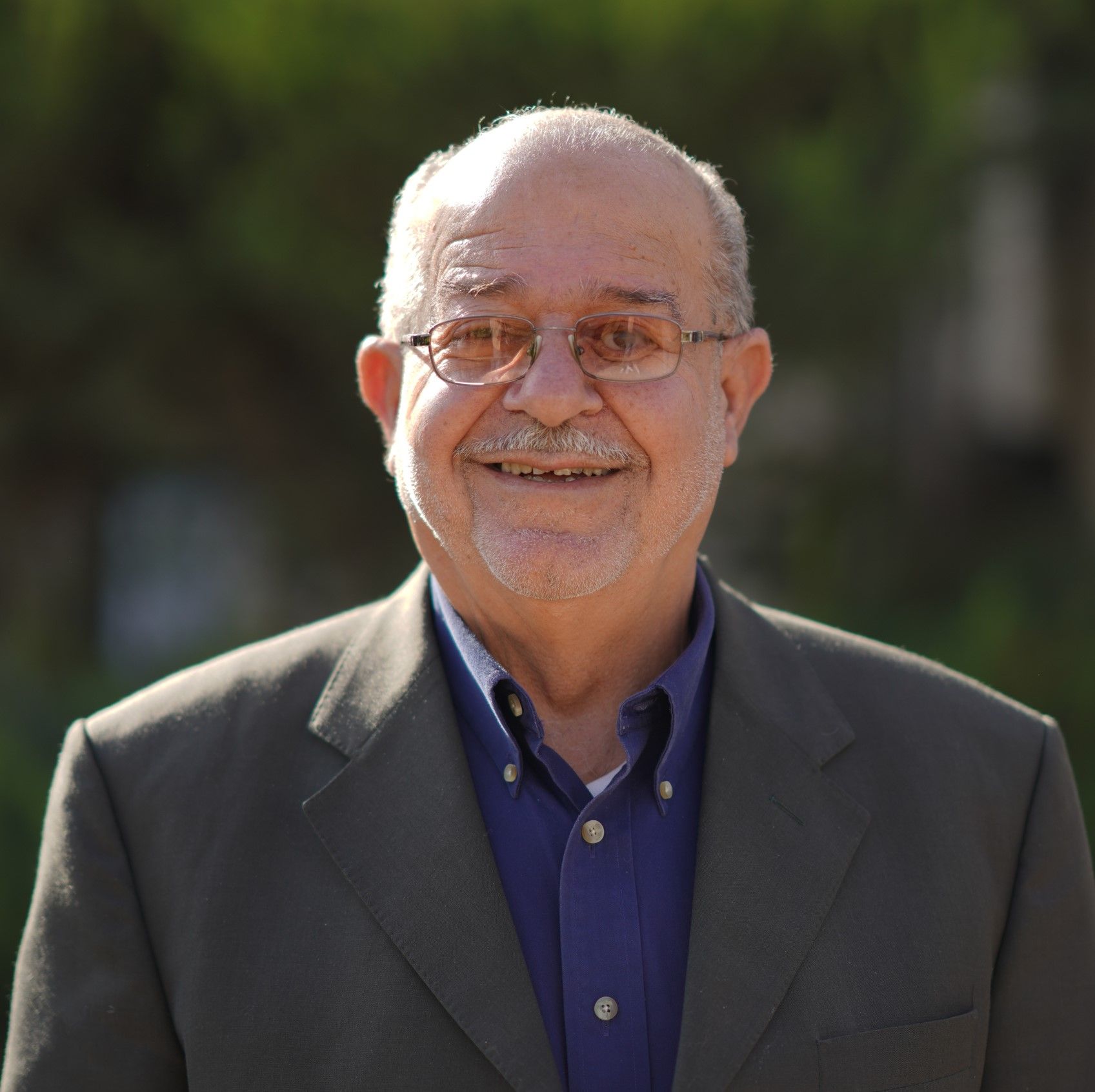
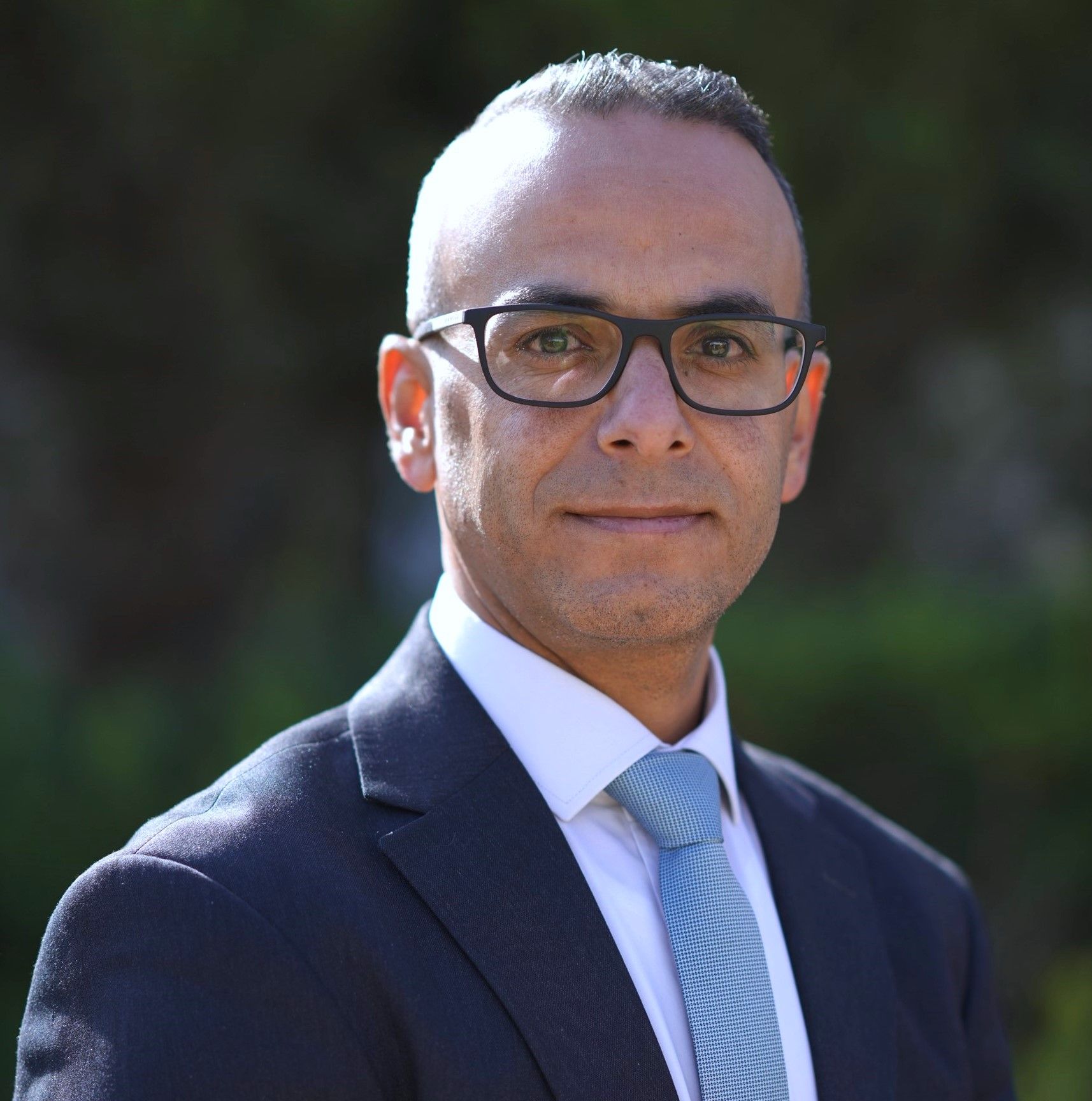
Mohammad QABAJAH holds a Bachelor’s degree in Medical Laboratory Science from Al-Quds University, earned in 2008. Motivated by a passion for continuous learning, he pursued further studies through a collaborative program between Palestine Polytechnic University (PPU) and Bethlehem University, completing his Master’s degree in Biotechnology in 2011.
Throughout his career, Mohammad has garnered extensive experience across diverse domains, serving as a lab technician, product specialist in medical companies, and academic roles. These roles have deepened his practical insights and demonstrated his ability to translate intricate scientific concepts into practical solutions.
In 2021, Mohammad joined Al-Quds University as a lecturer, finding fulfillment in mentoring and inspiring aspiring scientists. His teaching emphasizes molecular biology and clinical chemistry, motivating students to explore cutting-edge scientific advancements that could revolutionize healthcare.
Dedicated to research and development, Mohammad has actively contributed to pioneering projects in bioinformatics, molecular biology, and clinical chemistry. His efforts aim to enhance diagnostics, therapeutic approaches, and disease management, focusing on advancing global health outcomes.
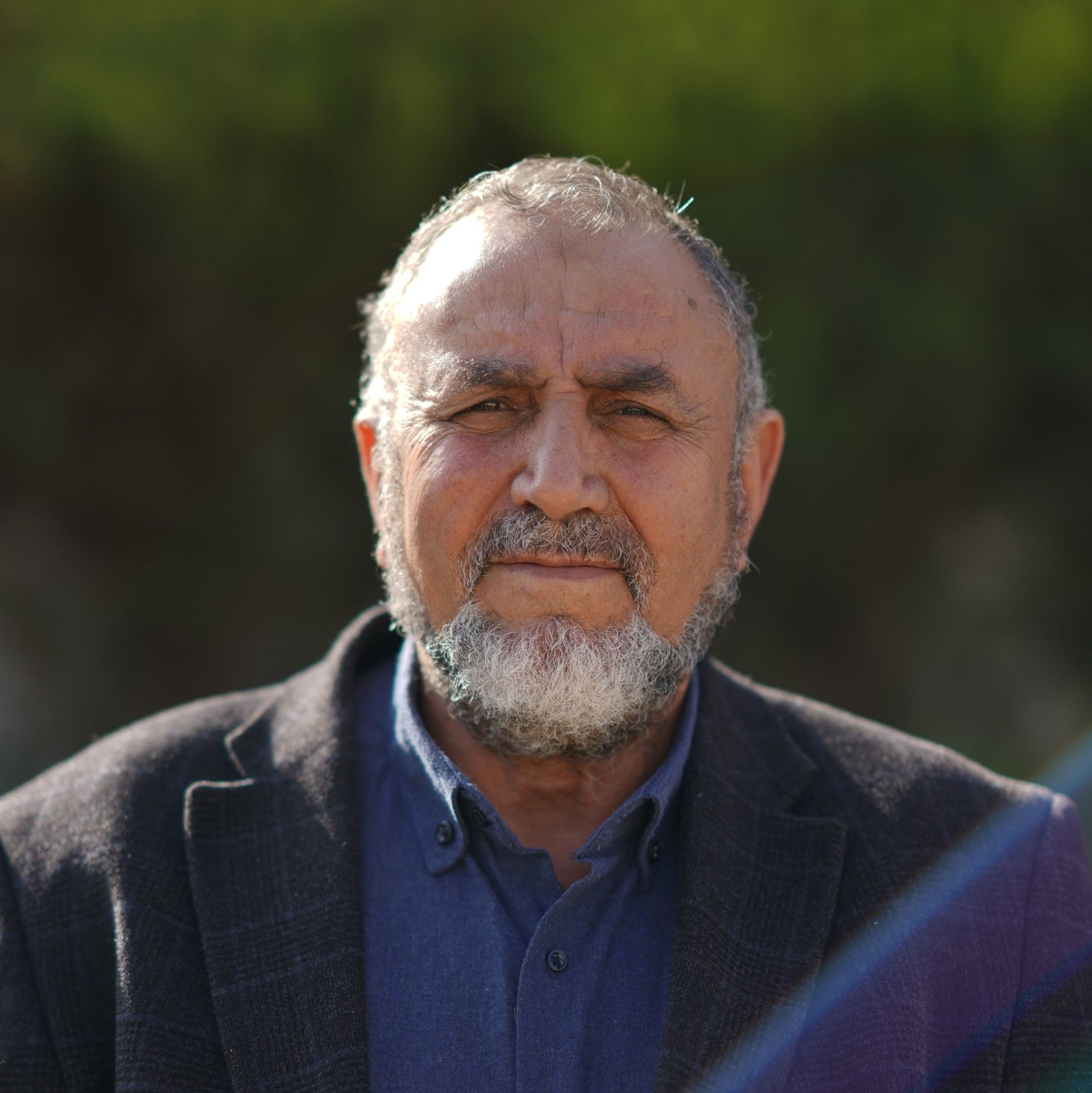
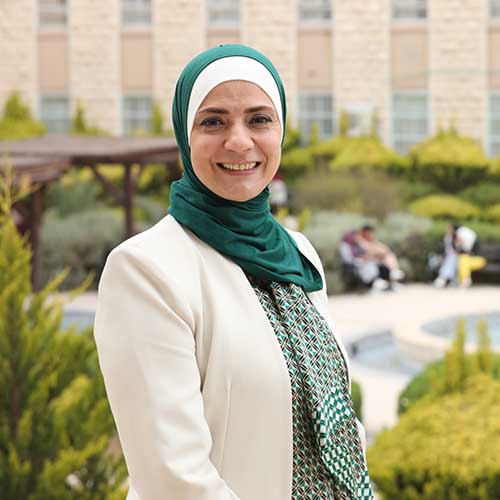
Prof. Abu Seir is an Professor of Hematology and a research activist at the Department of Medical Laboratory Sciences, Al-Quds University. She is the current dean of the Faculty of Health Professions and the Assistant President for Medical and Health Affairs. Prof. Rania is a highly qualified and motivated educator. She demonstrates a passion for teaching, learning and a high level of commitment. She is also well experienced in curricula development and evaluation. and a member of the curricula evaluation committee at AQU.
Prof. Abu Seir is an outstanding and remarkably active researcher in Palestine especially in the field of Cancer Research. Her research interests focus on the genetic and epidemiology of cancer in Palestine. She has established several platforms to study Lymphomas and Colorectal Cancer in addition to her researches in the field of transfusion medicine and blood Banking. Prof. Abu Seir is a member in several prestigious scientific international organizations including Middle East Cancer Consortium (MECC), Thalassemia International Federation (TIF), and Asian Association of Transfusion Medicine (AATM). She has consulted for the Palestinian Ministry of Health, Palestinian Medical Technology Association, Thalassemia Patients’ Friends Society (TPFS), and other national organizations for capacity-building in scientific and clinical research.
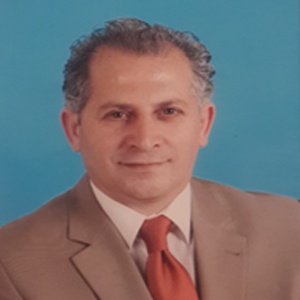
Dr. AbuHelu is am immunologist at the Medical Laboratory Sciences Department, Faculty of Health Profession, Al-Quds University. And, is the former General Director of Community Health Centers – including Arab Health Center – at Al-Quds University. Moreover, he was appointed as the head of the Medical Laboratory Sciences Department for two rounds (2004-2006 and 2017-2019) and he was the former dean for the Faculty of Health Professions (2007-2012).
He has been committed since the affiliation in 2001 to utilize a wide-range of technological solutions in ensuring an effective delivery of services along with an efficient management of resources in all administrative departments and medical wards.
He was a Visiting Fulbrighter Scholar at North Shore University Hospital in New York, USA establishing research on B-cell Chronic Lymphocytic Leukemia (CLL). He described the low affinity anti- μ IgH monoclonal antibody induces apoptosis in CLL B cells by down-regulating MCL-1 and up-regulating BimEL .
He encouraged collaboration with different health professions faculties in adopting evidence-based medical practices and offering a learning and training supportive environment for university students. He was one of the partners in a funded Erasmus Plus project to develop a master program in Health Informatics together with national and international universities (Spain, Sweden, Amsterdam, Cairo Univ., Ain Shams Unive. Jordan Univ and JUST). He managed also to win KA107 mobility program with Thomas More university in Geel, Belgium for 3 years (2019-2022).
He was a warded the Daniel Turnberg Fellowship to conduct his research HLA genotyping in Palestine that will be conducted at Imperial College in London, and recenly he he was able to won the Palestinian Quebec Science Bridge (PQSB) 3rd round from Palestinian Academy for Science and Technology (PALST) to pursue his research about “preclinical assessment of a novel antifungal (Valporic Acid) formulation for the treatment of human vaginal yeast infection”. This research will be conducted during the summer of 2022 at Laval University in CANADA.
During his academic and non-academic professional career he developed experienced leadership with expertise in organizational management, team building, recruiting staff, faculty development, motivation, and conflict resolution; demonstrated managerial skills by increasing quality and quantity of recruiting for academic staff.
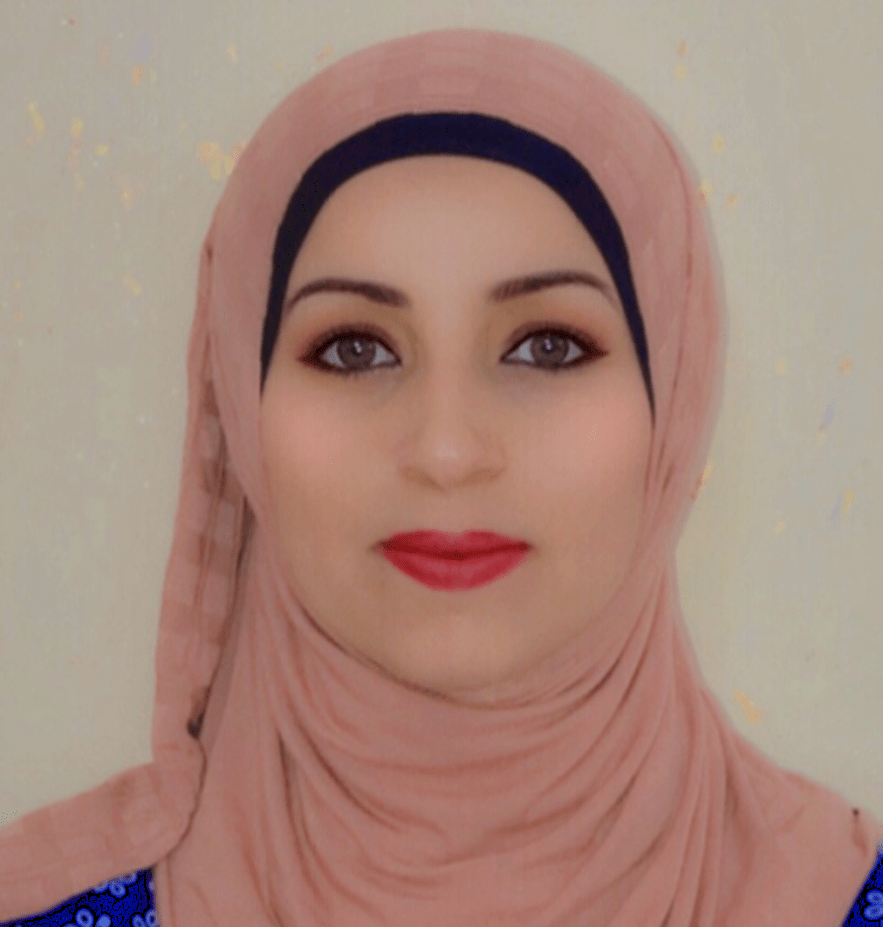
Teaching Assistants
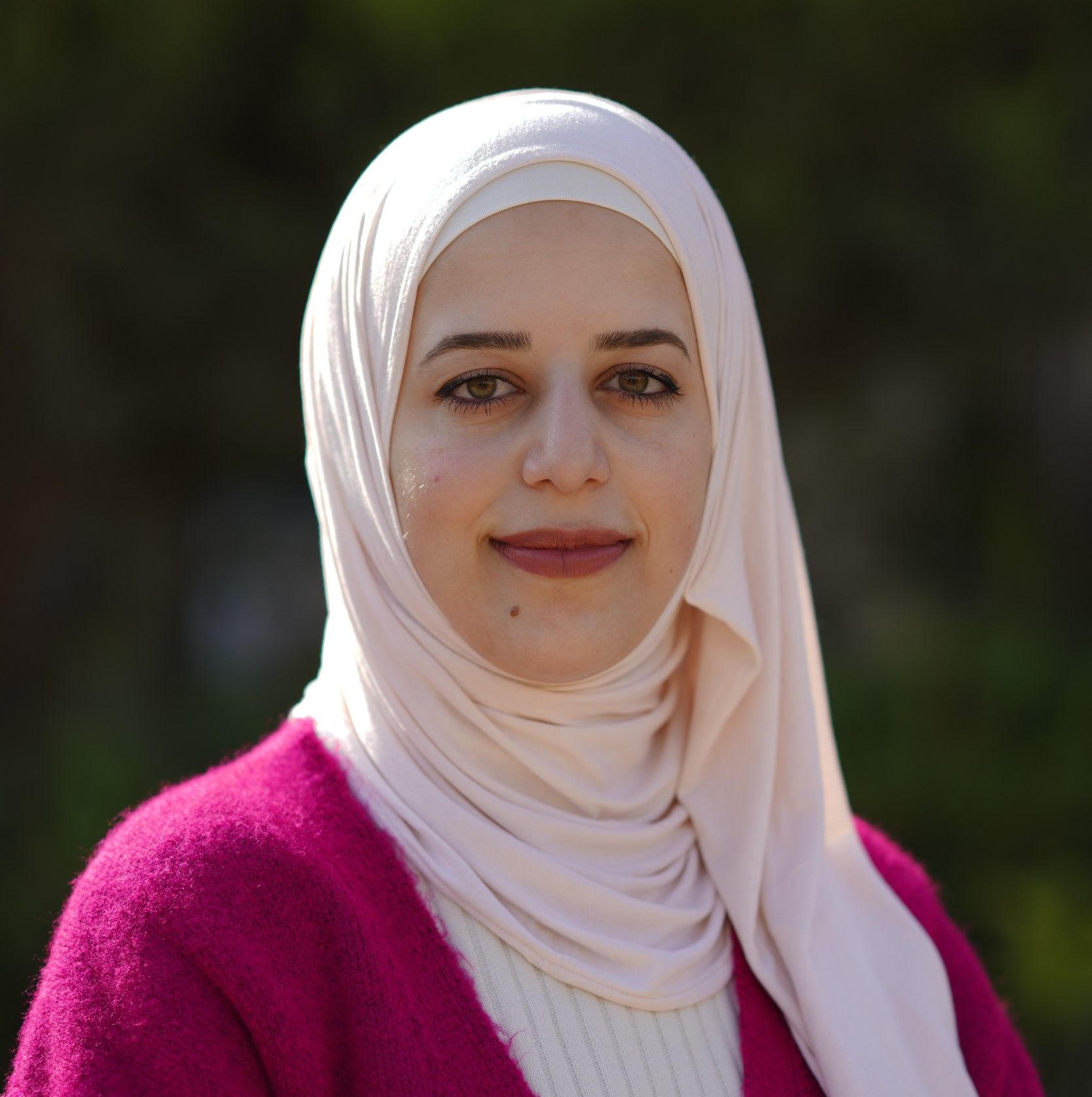
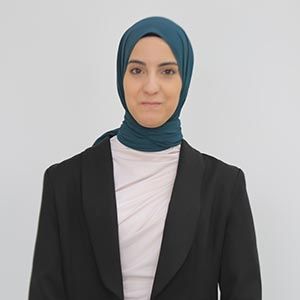
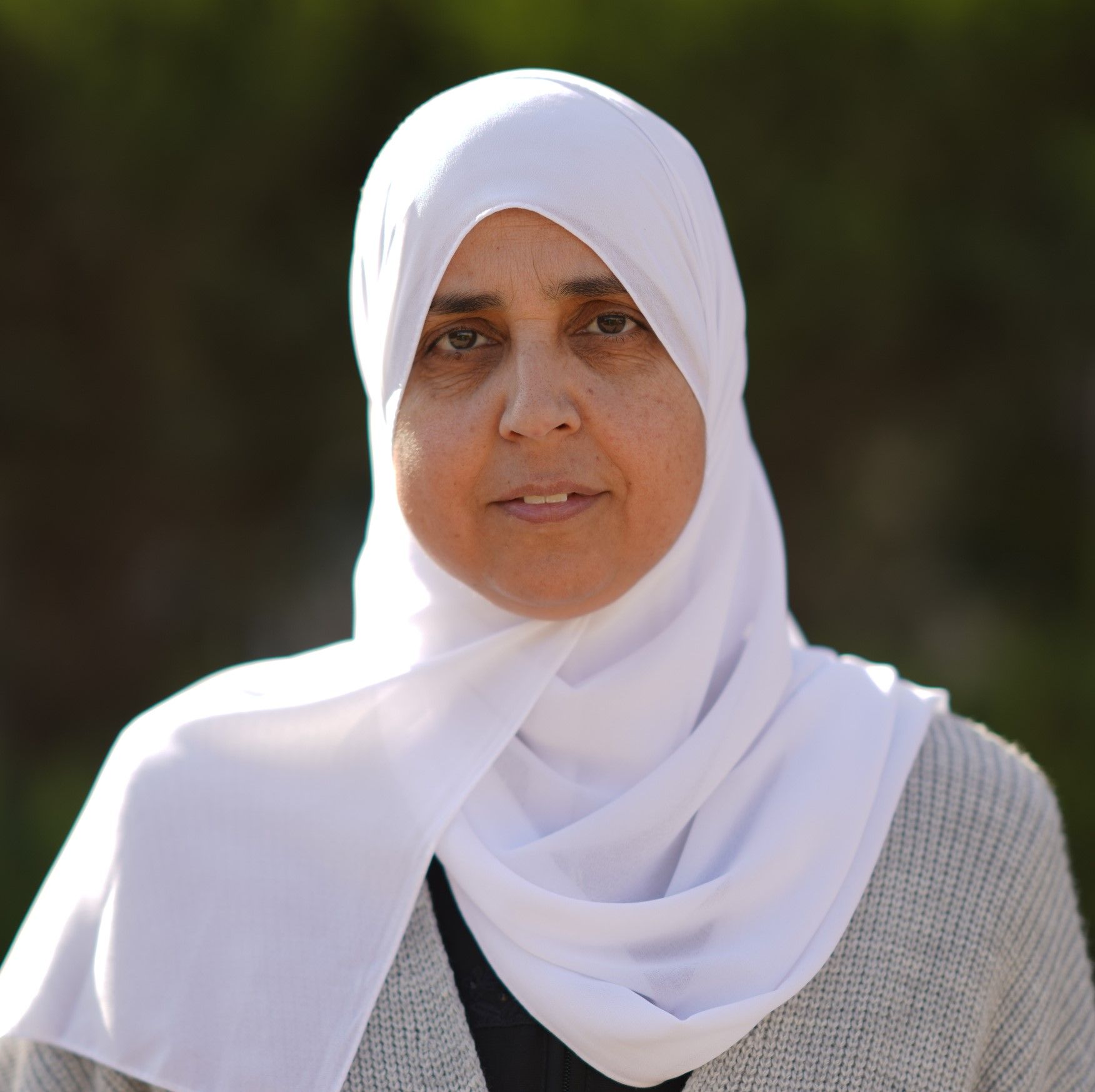
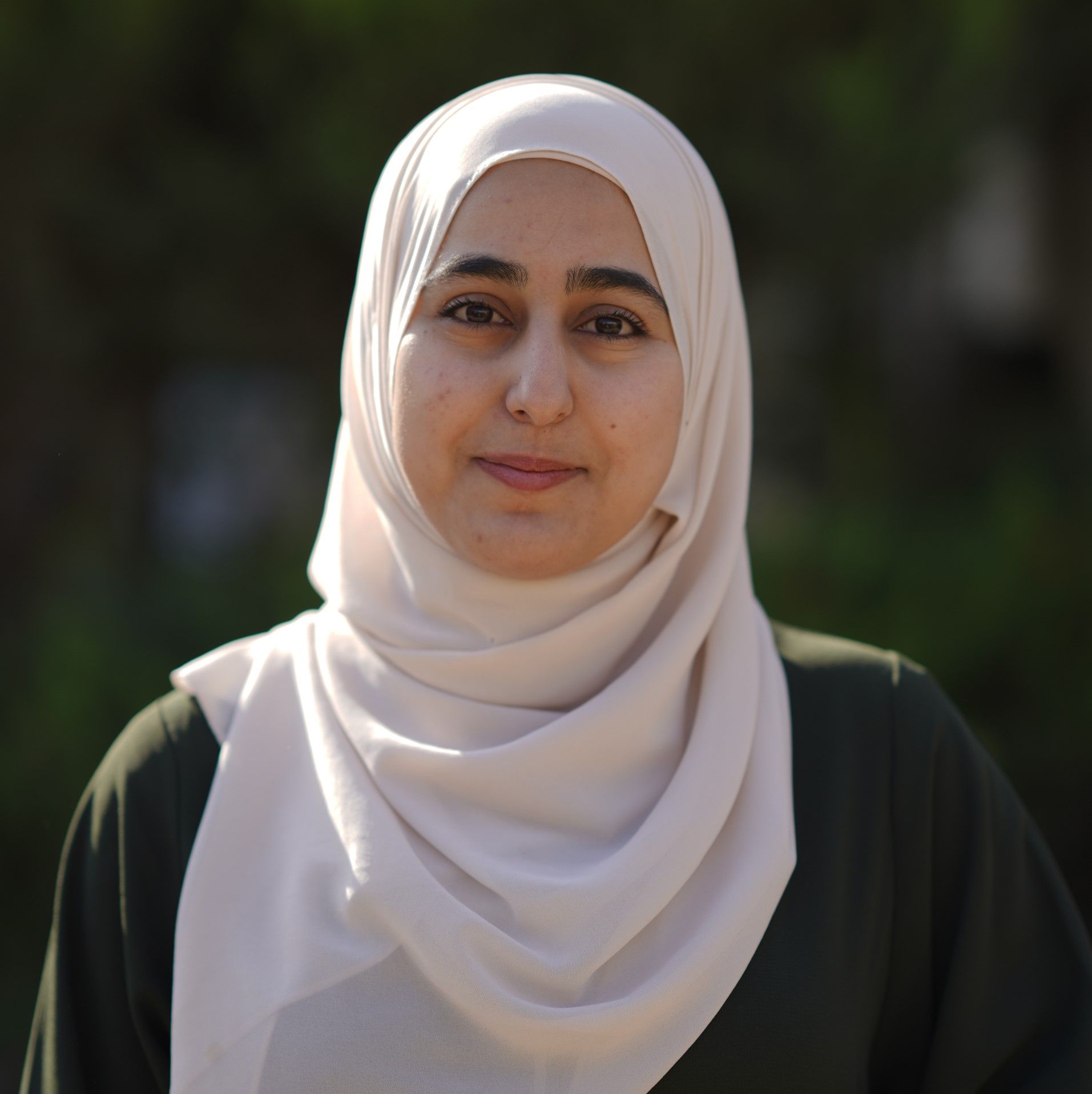
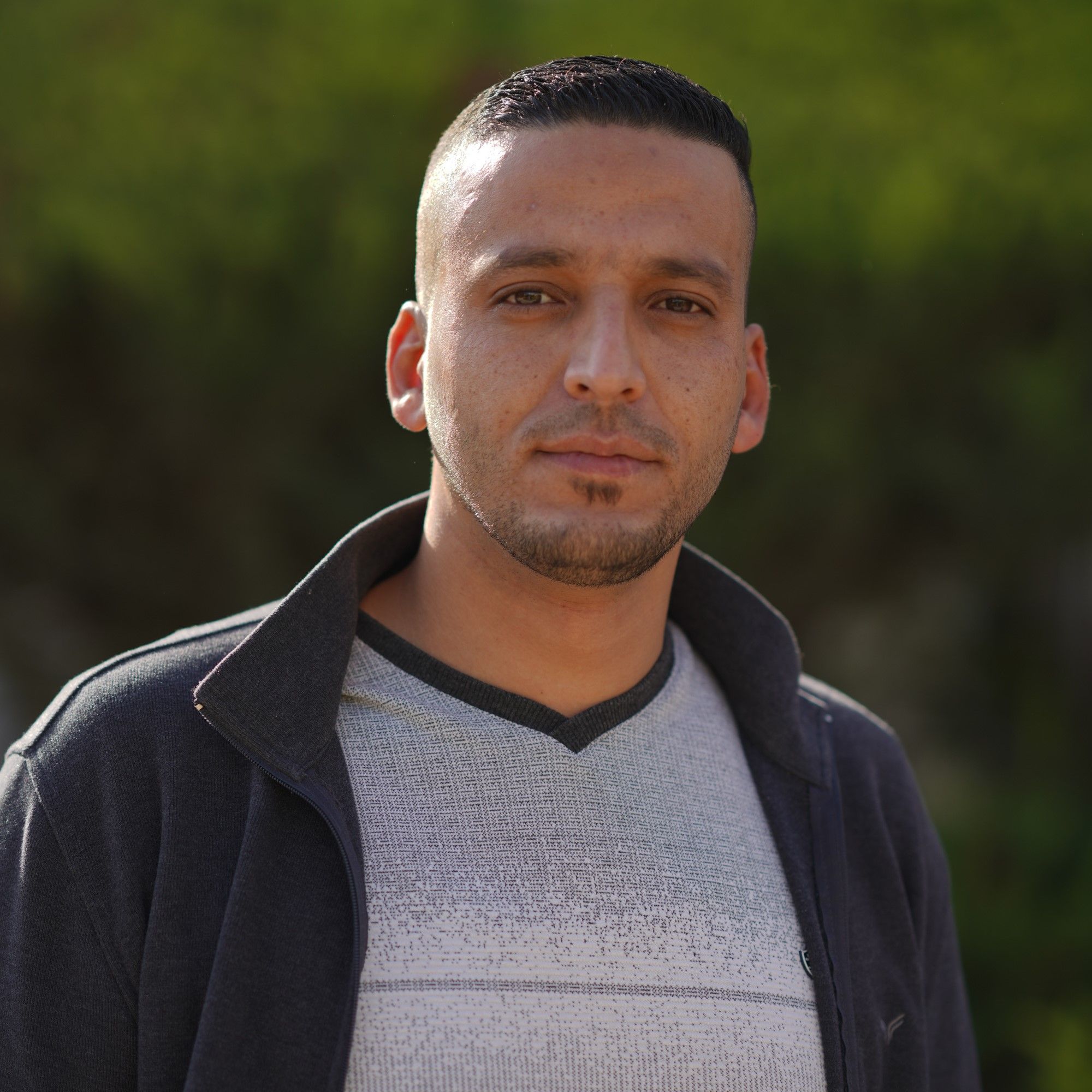
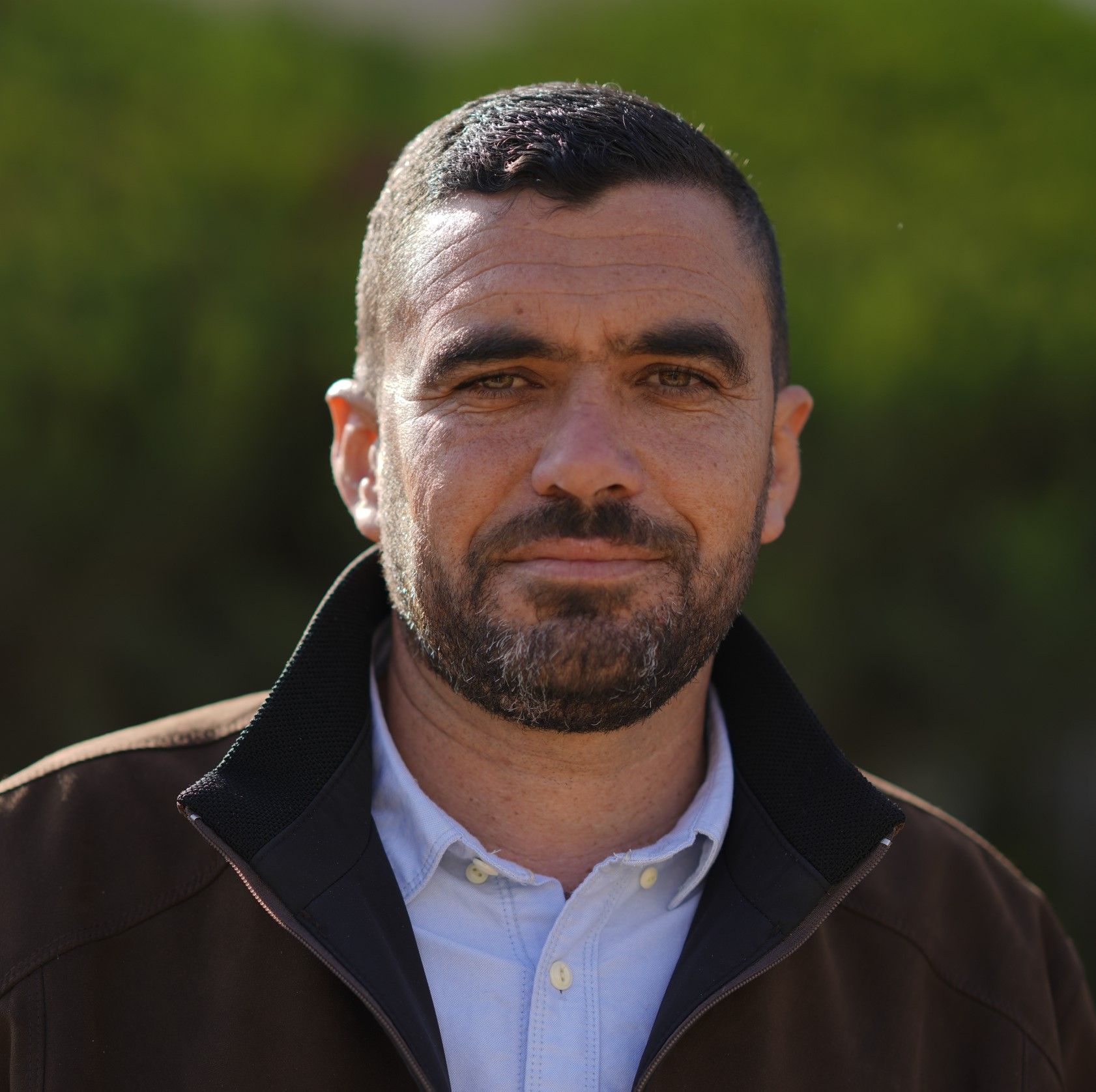
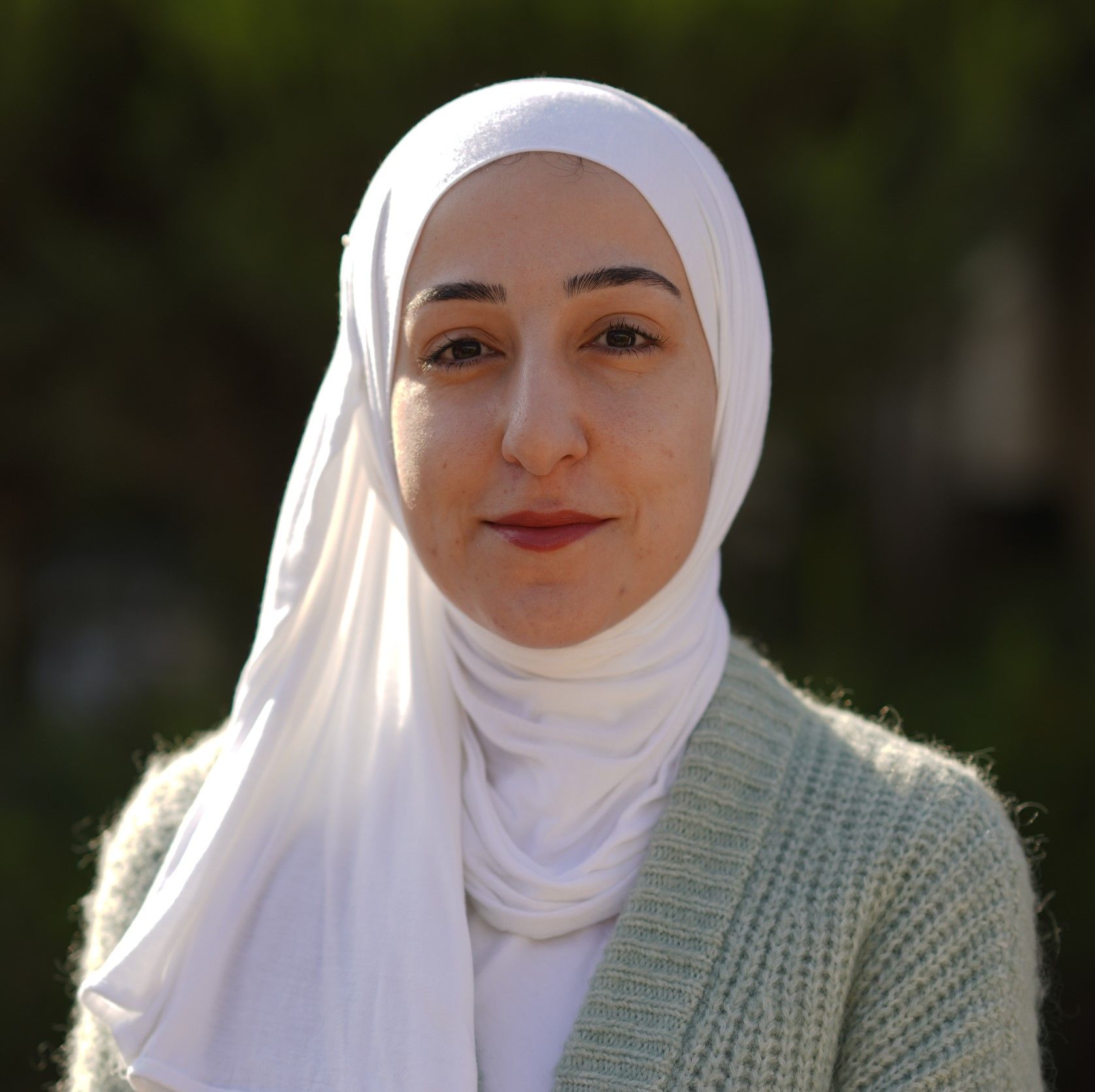
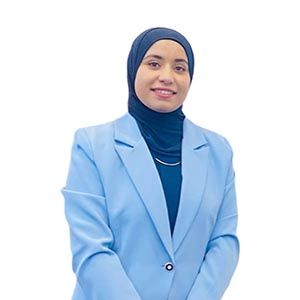
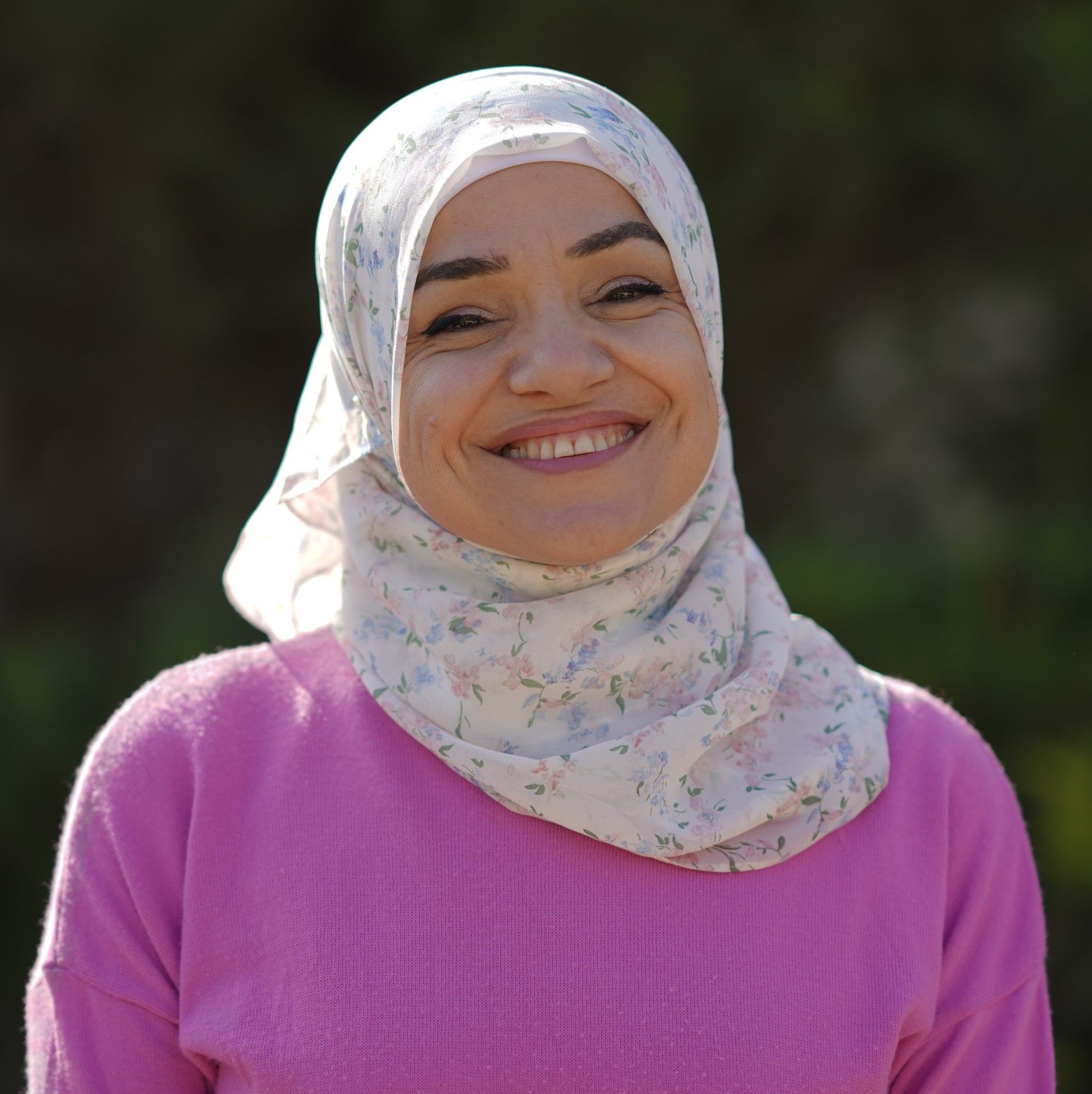
Administrative Assistant
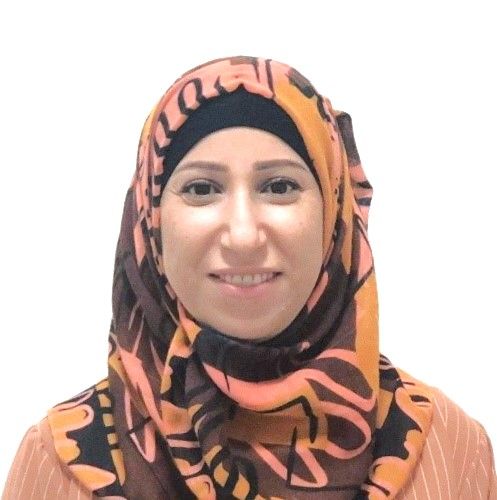
Featured News
 April 29, 2025
April 29, 2025
 April 29, 2025
April 29, 2025
Get in Touch with Us
We are happy to answer all your questions and inquires, please fill the below form and we will get in touch with you as soon as possible, or visit the Medical Laboratory Sciences Department at Health Complex on the Main Campus at Abu Dis
Medical Laboratory Sciences Department :
Health Complex Building
Main Campuse, Al-Quds University
Abu Dis, Palestine
Phone: (+970) 2 2756200
Email: nalkunbar@staff.alquds.edu



